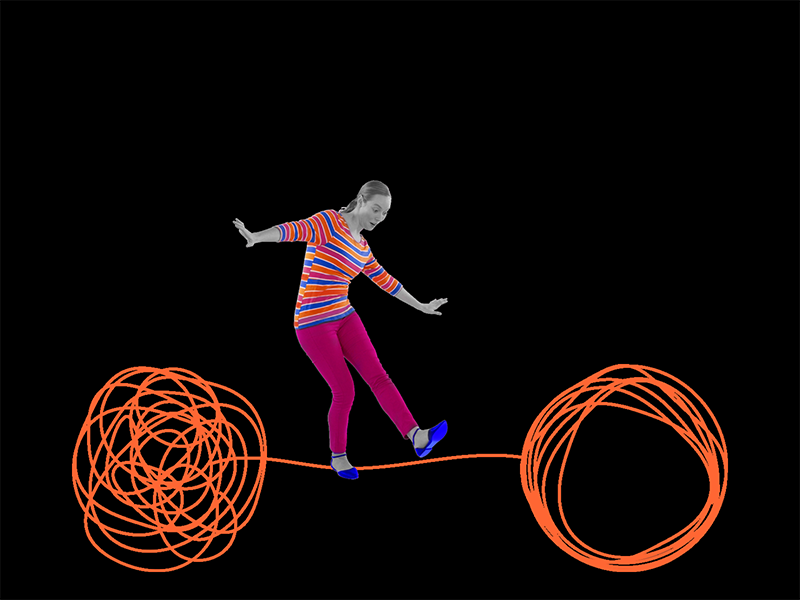

‘You have to suffer for your PhD’: poor mental health among doctoral researchers – new research
Lecturer in Social Sciences, University of Westminster
Disclosure statement
Cassie Hazell has received funding from the Office for Students.
University of Westminster provides funding as a member of The Conversation UK.
View all partners
PhD students are the future of research, innovation and teaching at universities and beyond – but this future is at risk. There are already indications from previous research that there is a mental health crisis brewing among PhD researchers.
My colleagues and I studied the mental health of PhD researchers in the UK and discovered that, compared with working professionals, PhD students were more likely to meet the criteria for clinical levels of depression and anxiety. They were also more likely to have significantly more severe symptoms than the working-professional control group.
We surveyed 3,352 PhD students, as well as 1,256 working professionals who served as a matched comparison group . We used the questionnaires used by NHS mental health services to assess several mental health symptoms.
More than 40% of PhD students met the criteria for moderate to severe depression or anxiety. In contrast, 32% of working professionals met these criteria for depression, and 26% for anxiety.
The groups reported an equally high risk of suicide. Between 33% and 35% of both PhD students and working professionals met the criteria for “suicide risk”. The figures for suicide risk might be so high because of the high rates of depression found in our sample.
We also asked PhD students what they thought about their own and their peers’ mental health. More than 40% of PhD students believed that experiencing a mental health problem during your PhD is the norm. A similar number (41%) told us that most of their PhD colleagues had mental health problems.
Just over a third of PhD students had considered ending their studies altogether for mental health reasons.

There is clearly a high prevalence of mental health problems among PhD students, beyond those rates seen in the general public. Our results indicate a problem with the current system of PhD study – or perhaps with academic more widely. Academia notoriously encourages a culture of overwork and under-appreciation.
This mindset is present among PhD students. In our focus groups and surveys for other research , PhD students reported wearing their suffering as a badge of honour and a marker that they are working hard enough rather than too much. One student told us :
“There is a common belief … you have to suffer for the sake of your PhD, if you aren’t anxious or suffering from impostor syndrome, then you aren’t doing it "properly”.
We explored the potential risk factors that could lead to poor mental health among PhD students and the things that could protect their mental health.
Financial insecurity was one risk factor. Not all researchers receive funding to cover their course and personal expenses, and once their PhD is complete, there is no guarantee of a job. The number of people studying for a PhD is increasing without an equivalent increase in postdoctoral positions .
Another risk factor was conflict in their relationship with their academic supervisor . An analogy offered by one of our PhD student collaborators likened the academic supervisor to a “sword” that you can use to defeat the “PhD monster”. If your weapon is ineffective, then it makes tackling the monster a difficult – if not impossible – task. Supervisor difficulties can take many forms. These can include a supervisor being inaccessible, overly critical or lacking expertise.
A lack of interests or relationships outside PhD study, or the presence of stressors in students’ personal lives were also risk factors.
We have also found an association between poor mental health and high levels of perfectionism, impostor syndrome (feeling like you don’t belong or deserve to be studying for your PhD) and the sense of being isolated .
Better conversations
Doctoral research is not all doom and gloom. There are many students who find studying for a PhD to be both enjoyable and fulfilling , and there are many examples of cooperative and nurturing research environments across academia.
Studying for a PhD is an opportunity for researchers to spend several years learning and exploring a topic they are passionate about. It is a training programme intended to equip students with the skills and expertise to further the world’s knowledge. These examples of good practice provide opportunities for us to learn about what works well and disseminate them more widely.
The wellbeing and mental health of PhD students is a subject that we must continue to talk about and reflect on. However, these conversations need to happen in a way that considers the evidence, offers balance, and avoids perpetuating unhelpful myths.
Indeed, in our own study, we found that the percentage of PhD students who believed their peers had mental health problems and that poor mental health was the norm, exceeded the rates of students who actually met diagnostic criteria for a common mental health problem . That is, PhD students may be overestimating the already high number of their peers who experienced mental health problems.
We therefore need to be careful about the messages we put out on this topic, as we may inadvertently make the situation worse. If messages are too negative, we may add to the myth that all PhD students experience mental health problems and help maintain the toxicity of academic culture.
- Mental health
- Academic life
- PhD research

Publications Manager

Audience Insight Officer

Academic Programs Officer, Scheduling

Director, Student Administration

Sydney Horizon Educators – Faculty of Engineering (Targeted)
Thank you for visiting nature.com. You are using a browser version with limited support for CSS. To obtain the best experience, we recommend you use a more up to date browser (or turn off compatibility mode in Internet Explorer). In the meantime, to ensure continued support, we are displaying the site without styles and JavaScript.
- View all journals
- Explore content
- About the journal
- Publish with us
- Sign up for alerts
- 13 November 2019
The mental health of PhD researchers demands urgent attention
You have full access to this article via your institution.

Performance management — captured here in photographs from Frank Gilbreth — has long contributed to ill health in researchers. Credit: Kheel Centre
Two years ago, a student responding to Nature ’s biennial PhD survey called on universities to provide a quiet room for “crying time” when the pressures caused by graduate study become overwhelming. At that time , 29% of 5,700 respondents listed their mental health as an area of concern — and just under half of those had sought help for anxiety or depression caused by their PhD study.
Things seem to be getting worse.
Respondents to our latest survey of 6,300 graduate students from around the world, published this week, revealed that 71% are generally satisfied with their experience of research, but that some 36% had sought help for anxiety or depression related to their PhD.
These findings echo those of a survey of 50,000 graduate students in the United Kingdom also published this week. Respondents to this survey, carried out by Advance HE, a higher-education management training organization based in York, UK, were similarly positive about their research experiences, but 86% report marked levels of anxiety — a much higher percentage than in the general population. Similar data helped to prompt the first international conference dedicated to the mental health and well-being of early-career researchers in May. Tellingly, the event sold out .
How can graduate students be both broadly satisfied, but also — and increasingly — unwell? One clue can be found elsewhere in our survey. One-fifth of respondents reported being bullied; and one-fifth also reported experiencing harassment or discrimination.
Could universities be taking more effective action? Undoubtedly. Are they? Not enough. Of the respondents who reported concerns, one-quarter said that their institution had provided support, but one-third said that they had had to seek help elsewhere.
There’s another, and probably overarching, reason for otherwise satisfied students to be stressed to the point of ill health. Increasingly, in many countries, career success is gauge by a spectrum of measurements that include publications, citations, funding, contributions to conferences and, now, whether a person’s research has a positive impact on people, the economy or the environment. Early-career jobs tend to be precarious. To progress, a researcher needs to be hitting the right notes in regard to the measures listed above in addition to learning the nuts and bolts of their research topics — concerns articulated in a series of columns and blog posts from the research community published last month.
Most students embark on a PhD as the foundation of an academic career. They choose such careers partly because of the freedom and autonomy to discover and invent. But problems can arise when autonomy in such matters is reduced or removed — which is what happens when targets for funding, impact and publications become part of universities’ formal monitoring and evaluation systems. Moreover, when a student’s supervisor is also the judge of their success or failure, it’s no surprise that many students feel unable to open up to them about vulnerabilities or mental-health concerns.
The solution to this emerging crisis does not lie solely in institutions doing more to provide on-campus mental-health support and more training for supervisors — essential though such actions are. It also lies in recognizing that mental ill-health is, at least in part, a consequence of an excessive focus on measuring performance — something that funders, academic institutions, journals and publishers must all take responsibility for.
Much has been written about how to overhaul the system and find a better way to define success in research, including promoting the many non-academic careers that are open to researchers. But on the ground, the truth is that the system is making young people ill and they need our help. The research community needs to be protecting and empowering the next generation of researchers. Without systemic change to research cultures, we will otherwise drive them away.
Nature 575 , 257-258 (2019)
doi: https://doi.org/10.1038/d41586-019-03489-1
Reprints and permissions
Related Articles

- Research management

How PhD students and other academics are fighting the mental-health crisis in science
News Feature 09 JUL 24

How can I break into industry if my CV keeps disappearing into a black hole?
Career Feature 08 JUL 24

Harrowing trends: how endangered-species researchers find hope in the dark

‘All things that wander in the heavens’: how I swapped my ivory tower for the world of science fiction
Career Q&A 04 JUL 24
Regulate to protect fragile Antarctic ecosystems from growing tourism
Correspondence 09 JUL 24

Scientists relieved by far-right defeat in French election — but they still face uncertainty
News 08 JUL 24

COVID tsar Patrick Vallance appointed UK science minister
Postdoctoral Fellow - Boyi Gan lab
New postdoctoral positions are open in a cancer research laboratory located within The University of Texas MD Anderson Cancer Center. The lab curre...
Houston, Texas (US)
The University of Texas MD Anderson Cancer Center - Experimental Radiation Oncology
Senior Research Associates x 3 – Bioinformatician Team
The Genomics and Bioinformatics Core (GBC) within the Institute of Metabolic Science – Metabolic Research Laboratories at the Clinical School, Univers
Cambridge, Cambridgeshire
University of Cambridge
Al Medical Engineering at School of Biomedical Engineering
Tsinghua BME offers faculty positions in the emerging research direction of AI Medical Engineering
Beijing, China
Tsinghua University
Shanghai Jiao Tong University Global Recruitment
Interested applicants can send CV to the relevant department/school.
Shanghai, China
Shanghai Jiao Tong University
Faculty Positions in School of Engineering, Westlake University
The School of Engineering (SOE) at Westlake University is seeking to fill multiple tenured or tenure-track faculty positions in all ranks.
Hangzhou, Zhejiang, China
Westlake University
Sign up for the Nature Briefing newsletter — what matters in science, free to your inbox daily.
Quick links
- Explore articles by subject
- Guide to authors
- Editorial policies
REVIEW article
A narrative review of anxiety regulation in phd students based on green model.

- 1 Macau University of Science and Technology, Taipa, Macao SAR, China
- 2 Southern Medical University, Guangzhou, Guangdong, China
- 3 Evidence Based Nursing and Midwifery Practice PR China: A JBI Centre of Excellence, School of Nursing, Southern Medical University, Guangzhou, China
- 4 The Eighth Affiliated Hospital, Sun Yat-sen University, Shenzhen, China
To gain a better understanding of the factors that contribute to anxiety among PhD students and the reasons for poor regulation in the current situation, this paper analyses the existing literature on anxiety among PhD students using Green's model. It also compares and evaluates various methods of regulating anxiety. The literature review to extract information on the causes and levels of anxiety, methods and outcomes of anxiety intervention and regulation, and to make comparisons. The study reveals that the phenomenon of PhD students' anxiety has intensified globally in recent years, especially after the end of the epidemic. PhD students experience anxiety due to research pressure, economic pressure, future development, and interpersonal pressure. The main influencing factors are currently the relationship with the supervisor, development prospects, social support, and peer comparison. Among the stress relief methods, the regulation of self-relaxation was found to have better effects on mild anxiety, such as positive thinking, meditation, yoga and physical exercise can be helpful for emotion release then help focus on problem solved. Whereas severe anxiety may require institutional and pharmacological support, also including using psychological therapy such as behavioral cognitive therapy and systematic desensitization methods. For university, competence to provide course-assisted guidance, such as writing groups, peer support, and time management, is also important. Academic communities should pay attention to the guidance on academic fairness. However, PhD students are often unaware of the resources available to them for coping with stress and may not take the initiative to seek psychological counseling or institutional assistance. Therefore, PhD students should receive support from various sources, be guided to express their thoughts, and receive additional education and academic assistance to manage stress. This will enhance their confidence and aid in improving their scientific research.
1 Introduction
In recent years, the number of PhD (Doctor of Philosophy) has increased rapidly. In 2018, China alone had a total of 389,518 PhD students ( China National Bureau of Statistics, 2018 ; National Bureau of Statistics Database of China, 2018 ). There are plans to further expand the scale of doctoral enrollment in the future ( Ministry of Education of the People's Republic of China., 2023 ). The countries with the highest number of PhD students are the U.S., Germany, and the U.K. Until 2020, there were more than 281,360 DRs enrolled in these three countries ( Hazell et al., 2020 ). There has been a rising prevalence of anxiety and depression among PhD the whole world. The PhD community plays a crucial role in higher education and its outcomes ( Schmidt and Hansson, 2018 ), with PhD programs closely linked to scientific research output ( Wei, 2015 ). Compared to master's degree students, PhD students experience more severe anxiety ( Divaris et al., 2012 ). Studies have indicated PhD have high levels of anxiety the whole world, especially among medical PhD students, particularly in clinical fields. Pressures stem from academic tasks, future career prospects, and publication demands ( Mao, 2014 ).
Although the academic settings and society have adopted many ways to alleviate the pressure of doctoral students, such as the introduction of psychological adjustment public welfare courses, psychological counseling and psychological crisis practice defense system, corresponding scientific research writing courses, social subsidies for doctoral students and employment policies for talents. But at present, the anxiety of PhD students has not been alleviated, and even the prevalence of anxiety is more serious. Therefore, this paper uses Green's model for analysis. The Green model, specifically the PRECEDE-PROCEED model, has been effectively used in the field of health promotion evaluation ( Didehvar et al., 2016 ; Payne et al., 2016 ). PRECEDE integrates predisposing, enabling, and reinforcing factors affecting target behaviors, while PROCEED supports policies, regulations, and environmental factors during educational interventions ( Wang et al., 2018 ). Based on the Green's model, this paper analyzes influencing factors from PRECEDE and evaluates existing intervention programs from PROCEED to offer guidance for universities and individuals in addressing PhD anxiety. It makes the analysis of influencing factors and intervention effects include multiple levels, so as to have a more comprehensive understanding of doctoral anxiety.
The literature review involved searching for studies related to anxiety among PhD students. This was conducted across several databases, including PubMed, Web of Science, and ProQuest for English-language studies, and Wanfang, VIP, and CNKI for Chinese-language studies. We searched the literature using the following keywords: (‘anxiety' AND ‘PhD’ AND ‘regulation’) from inception to March 2024. Based on PRISMA 2020 Identification of studies via databases, finally we included 48 ( Supplementary Figure 1 ). Among the included literatures, there were cross-sectional studies, intervention research and qualitative interviews ( Supplementary Table 1 ). Covering specific cases and empirical evidence can strengthen the discussion and provide real-life examples to illustrate the breadth and comprehensiveness of Green's model in PhD students' anxiety.
2 PRECEDE stage: assessment of PhD students' anxiety
2.1. social and environmental assessment.
Social and environmental factors contributing to the anxiety experienced by PhD students encompass various dimensions. ① The surge in postgraduate enrollments and the pursuit of professional advancement have intensified the pressure to publish in high-quality journals ( Liu et al., 2019 ). The escalating demand has strained the availability of core journals, rendering the publication process more challenging. In the context of China, the decade from 2009 to 2018 witnessed a 48% increase in national PhD enrollment, while the publication volume in Chinese Social Sciences Citation Index (CSSCI) journals declined by 22.65%. Approximately 80% of the 567 journals examined showed a downward trend in publication volume, with 48% experiencing a decrease of over 20% ( Wang, 2022 ). ② The nature of PhD work compounds anxiety due to the absence of timely positive feedback, the monotonous repetition of tasks, and prolonged periods of experimentation without favorable results. Limited vacation time, coupled with an intense desire for success, leads some PhD students to forego holidays, engaging in overtime work. For instance, more than a third (35%) of respondents said their projects did not meet their initial expectations; 70% said they spent more than 40 h a week on their projects ( Woolston, 2022 ). ③ A lack of comfort, minimal leisure, and limited engagement in social activities contribute to the PhD students' anxiety ( Hazell et al., 2020 ). The absence of opportunities to share their concerns with others exacerbates negative emotions ( Guo, 2019 ). ④ Interpersonal relationships and social isolation play a significant role in inducing academic burnout among PhD students. Strained relationships with teachers and peers, coupled with a lack of emotional support, heighten the risk of burnout ( He et al., 2020 ). ⑤ Economic pressures arise from the absence of working income for full-time PhD candidates, reduced income for those pursuing on-the-job PhD's and inadequate rewards for scientific research. The economic disparity compared to peers who have entered the workforce contributes to a pervasive “sense of failure.” ( Bazrafkan et al., 2016 ; Charles et al., 2022 ) ⑥ Peer pressure, conflicts, and negative feedback from colleagues can lead to distraction from scientific research. Unconscious comparisons and consolation may exacerbate feelings of incompetence and anxiety ( Zhong et al., 2011 ; Hazell et al., 2020 ). ⑦ Cultural factors contribute to marriage anxiety among single female PhD students. Limited psychological support institutions, coupled with societal reluctance to seek help, exacerbate the challenges faced by these students ( Guo, 2019 ). ⑧ Employment factors, including a pervasive “whether high or low is not enough” mentality, and uncertainty about job opportunities in the aftermath of the epidemic, contribute to the involution of PhD students' perceptions of their career prospects ( Wang, 2016 ; Woolston, 2020a , b , 2022 ). ⑨ Family factors, encompassing marital considerations and traditional family cognitive factors, influence emotional regulation. The educational background and occupation of the mother, along with family and social status, impact PhD students' emotional well-being ( Feng and Zhang, 2017 ). ⑩ Poor time management, exacerbated by additional tasks beyond scientific research, further compounds anxiety among PhD students. The inability to meet set tasks intensifies the already substantial pressure associated with scientific research ( Wang, 2016 ; Wang et al., 2019 ).
2.2 Epidemiology and behavioral diagnosis
2.2.1 epidemiological diagnosis and characteristics: for number of anxiety phd.
A global consensus acknowledges an increasing prevalence of anxiety among doctors worldwide. A comprehensive survey conducted by Nature in 2019 encompassed 6,300 PhD students from various corners of the world. The findings revealed a 72% satisfaction rate among international PhD students, with 36% seeking assistance for anxiety or depression linked to their PhD pursuits ( Woolston, 2019 ). In contrast, only 55% of PhD students in China expressed satisfaction with their PhD careers, with 40% seeking help for anxiety or depression stemming from academic challenges. Notably, studies in China underscore a high prevalence of anxiety among medical doctors. For instance, an anxiety detection rate of 24.76% was observed among 315 medical doctors ( Tan and Chen, 2018 ). However, this detection rate appears to underestimate the actual prevalence. Epidemiological surveys further illuminate variations in anxiety levels among PhD students based on factors such as age, undergraduate specialization, gender, educational background, urban-rural origin, academic discipline (social science vs. natural science), and the classification of universities (e.g., key universities under the “985 Project,” “211 Project,” and “Double First-Class” initiative) from which PhD students graduate ( Wu, 2019 ).
2.2.2 Behavioral diagnosis: for stressors and coping skills
A pivotal aspect of behavioral diagnosis involves understanding the stress and coping processes that individuals undergo when confronted with challenges or failures. When faced with stressors, individuals typically employ three primary coping strategies—problem solving, emotional management, and avoidance. Problem-solving entails directly addressing and resolving issues, such as writing papers or completing tasks. In instances where direct resolution proves elusive, individuals' resort to emotional management, employing psychological defense mechanisms and cognitive adjustments. Seeking advice and external assistance may be part of this strategy. When emotional management fails, some individuals may resort to avoidance, as evidenced by a study where 37% of students in a vocational DPH project contemplated giving up ( Hlabse et al., 2016 ). In severe cases, individuals may experience a sense of entrapment and exhibit suicidal tendencies. Physiologically, adverse responses trigger a triple reaction involving endocrine changes (e.g., adrenal gland enlargement), immune system alterations (e.g., thymic gland degeneration), and digestive system impacts (e.g., gastric erosion formation) ( Tachè, 2014 ). The psychological manifestations include anxiety and withdrawal, hindering effective problem-solving and exacerbating the source of pressure, leading to further damage. Consequently, poor coping mechanisms can result in a state of physical and mental collapse, often accompanied by anxiety that may evolve into depression. Behind anxiety often lies the potential for depression, which may manifest in atypical forms such as “hidden depression.” Individuals experiencing “high-functioning depression” or “smiling depression” may outwardly function well socially while harboring internal struggles. This form of depression is challenging to detect due to its seemingly normal social functioning.
In the cognitive and response processes, Hans Selye's stress and adaptation theory delineates stress feelings into alert, resistance, and exhaustion periods. Failure to manage stress during the resistance period in the PhD stage may lead to negative responses during the exhaustion period, potentially resulting in severe consequences. Richard S. Lazarus's three-stage cognitive evaluation further emphasizes the importance of cognitive assessments at different stages, including primary evaluation, secondary evaluation, and re-evaluation. Given the advanced cognitive capabilities of PhD students, their anxiety often roots from continuous negative feedback in the cognitive evaluation process. For instance, the high-level task of publishing an article with its lengthy cycle can be emotionally taxing, particularly when manuscripts face multiple rejections. In the face of repeated setbacks, PhD students may develop learned helplessness and anticipatory grief, diminishing motivation for persistence and efforts. This cascade of challenges may lead to escalating anxiety, pushing individuals into a stage of failure accompanied by severe physical and mental reactions, and potentially contributing to the “pretender syndrome” involving self-denial ( Inouye, 2021 ).
2.2.3. Important behaviors and relatively unimportant behaviors
When confronting stressors that cannot be eliminated, the focus shifts to changing cognition and actions in the coping process. For significant behaviors, the emphasis lies in attitudinal shifts, such as redefining professional identity, reassessing the significance of reading, and confronting challenges for a deeper understanding. Simultaneously, breaking cognitive limitations and building self-confidence, enhancing metacognitive strategies becomes crucial. Metacognitive strategies mitigate learning disruptions arising from reluctance to draft or modify writing, fostering smoother academic progress and minimizing self-doubt. In contrast, for relatively unimportant behaviors, once self-confidence is established and a positive psychological learning will is generated, actions may include enhancing learning and research skills, adopting effective coping strategies, engaging in physical exercise, and managing interpersonal relationships, particularly within the academic “mentor, team, and laboratory” framework ( Tan and Chen, 2018 ).
2.2.4. High variability behaviors and low variability behaviors
Addressing sources of pressure with high variability or low variability poses challenges for immediate change or removal. Consequently, emphasis is placed on cognitive evaluation and coping strategies. High-variability approaches involve active participation in activities, seeking external assistance, and altering lifestyle and thought patterns, encompassing aspects like time management, cognitive enhancement, and improvement of research abilities ( Meehan et al., 2023 ). Low-variability behavior is characterized by an internal aversion to unfamiliar circumstances, resistance to changing original ideas, and avoidance of tackling challenging problems through thoughtful consideration ( Murguía Burton and Cao, 2022 ).
2.2.5. Low variability and important factors
Including cognitive adjustments for low-variability and important factors involve reducing task difficulty, such as cultivating micro-habits, and enhancing positive energy through training in positive thinking. Also, according to the health theory of complementary and alternative therapy ( Blue et al., 2016 ), some PhD students, for example, relieve stress by smoking and drinking. If they are not allowed to smoke, and there is no other alternative pastime to satisfy their inner needs, then this habit is difficult to change. Their bodies are used to this pattern and their subconscious will resist any change. However, if universities provide a good alternative, such as leading them in exercise, meditation or reading books, these methods can help people relax, relieve stress and better meet their inner needs. Therefore, it is also possible to cultivate new good habits to replace the original bad habits and to gradually consolidate these good habits in a long-term process. Therefore, for important but low-variable factors, a gradual substitution can be made on the basis of this theory.
2.3 Educational and ecological diagnosis: for self-evaluation and academic environment
The evolution of individual psychological self-consciousness is closely intertwined with external environmental changes. Research indicates that the combination of objective support, support utilization, and negative coping styles can collectively account for 18.6% of the variance in PhD students' mental health ( Lu et al., 2012 ). Consequently, an education organization diagnosis is imperative to address PhD students' anxiety. ① Predisposing Factors: Predisposing factors primarily pertain to internal behavioral tendencies within individuals, focusing on the phenomenon of anxiety and individual consciousness. PhD students and their groups often exhibit vague cognition regarding the significance of reading ( Liu, 2019 ), lack knowledge about stress and coping adjustments, and underestimate potential difficulties in the reading process. Insufficient confidence in overcoming challenges, confusion about future prospects, and pressure related to paper publishing and estimated graduation time further contribute to anxiety. This suggests a lack of judgment ability, metacognitive skills, and awareness of seeking external help. Additionally, the professional type and identity developed during undergraduate studies serve as predisposing factors for anxiety ( Bazrafkan et al., 2016 ; Van Laethem et al., 2016 ). ② Enabling Factors: Enabling factors directly or indirectly influence the environment and the manifestation of target behaviors. PhD express anxiety about future career scenarios, including graduation, work prospects, and relationships ( Wang et al., 2019 ). Current situations, such as the death of a loved one or papers not meeting graduation requirements, also impact their anxiety levels ( Liu et al., 2020 ). The school's insufficient provision of resources for stress education and psychological counseling further hinders effective problem-solving. ③ Reinforcing Factors: Reinforcing factors play a crucial role in sustaining target behaviors by providing rewards or timely feedback. External social support, such as the “stocking” phenomenon among tutors, wherein they may overestimate the PhD students' abilities, and peer and family support, can serve as buffers against individual psychological distress, consequently reducing PhD students' anxiety levels ( Sorrel et al., 2020 ). Recognizing and addressing these reinforcing factors is pivotal for creating a supportive academic environment.
2.4 Management policy assessment: for academic system and management policy
Given that educational issues are rooted in social systems, the development of educational policies necessitates careful consideration within these broader social contexts ( Wang, 2016 ). The “PhD cultivation system” emerges as a critical factor contributing to PhD anxiety, directly translating into the phenomenon of “graduation pressure” for PhD students. Expectations from PhD student groups, families, universities, governments, and nations at large place significant demands on PhD education. The factors causing anxiety vary slightly among different PhD groups. For instance, the “Direct Ph.D. track from Master's” pathway presents unique academic pressures due to the shorter duration of academic training after the master's stage ( Shi, 2019 ). Conversely, for Ph.D. students in medications, grappling with the frequent organization of information and the delicate balance between clinical work and scientific research, not only experience individual anxiety but also contribute to a broader phenomenon of “group anxiety” ( Xu and Yang, 2020 ).
Furthermore, upon entering society, particularly within the realms of universities and research institutions, PhD students grapple with the challenges of socialization and adjustment. Exposure to occasional “negative information” in organizational management processes contributes to concerns about the future, leading to anticipatory avoidance and anxiety among PhD students. Addressing these multifaceted challenges requires a comprehensive assessment of existing management policies within the educational framework.
3 PROCEED stage: anxiety regulation and effects for PhD students
3.1 implementation of targeted intervention program.
For self-regulation: The targeted intervention program encompasses self-regulation, involving the application of individual stress management experiences and various common stress management techniques. Engaging in activities like talking with friends, eating, watching TV, socializing, exercising, sleeping, aromatherapy, drinking, shopping, smoking, massage, seeking treatment, meditation, yoga, and taking medication may offer only temporary relief from stress. Without addressing the underlying stressor, the sense of worry is likely to re-emerge soon ( Bazrafkan et al., 2016 ). Existing research has not specifically focused on doctoral students utilizing exercise as a means to alleviate anxiety. Instead, studies have examined the general population, revealing that compared to inactive adults, those engaging in half the recommended amount of physical activity—equating to 4.4 marginal metabolic equivalent task hours per week (mMET-h/wk)—observed an 18% reduced risk of depression. Further, adults meeting the recommended physical activity threshold of 8.8 mMET-h/wk experienced a 25% lower risk of depression. The findings suggest that if less active adults had adhered to the current physical activity guidelines, approximately 11.5% of depression cases could have been averted ( Pearce et al., 2022 )). And for depression, exercise is effective in proportion to the intensity prescribed. Strength training and yoga seem to be the most acceptable modalities ( Noetel et al., 2024 ).
For institution-assisted regulation: Major universities play a crucial role in providing institutional support for cognitive responses through professional psychological counseling services. These services encompass health education specifically tailored to manage anxiety, specialized psychological counseling, and workshop sessions that usually last between 6 and 8 weeks. The goal is to destigmatize psychological counseling and reduce the stigma associated with seeking mental health assistance. The content primarily focuses on stress management training, employing diverse methods, including rational emotive therapy, systematic desensitization, behavioral cognitive therapy ( Liu, 2010 ), and integration with mindfulness meditation, yoga, and group discussions. Emphasis is placed on conveying to students the importance of perseverance in overcoming obstacles and the significance of self-forgiveness ( Fan, 2017 ). The program aims to enhance students' understanding of the purpose of pursuing a PhD program, the challenges they might encounter, and the active role they play in fostering a positive relationship with their mentors. Additionally, students are encouraged to recognize the importance of self-care in the pursuit of a PhD degree ( Hazell et al., 2020 ).
Universities can enhance course support capabilities: ① Offers training: Oxford University offers a specialized course titled “How to survive your PhD,” providing targeted support for PhD students navigating the challenges of their academic journey. ② Peer-Supported Learning Groups for Paper Writing: Recognizing the central role of paper writing, universities like Stanford have implemented supportive learning groups focused on peer support. Stanford's Supporting Writing Center organizes regular writing groups to directly enhance the writing skills of PhD candidates, addressing the core issue of anxiety. Writing camps, such as those at Stanford, set specific writing targets, such as requiring participants to produce at least 5,000 words in 3 days, offering a structured approach to alleviate procrastination ( Fleming, 2019 ). ③ Popular “Time Management” Courses: Colleges and universities offer widely popular “time management” courses, catering to the specific needs of PhD students seeking effective strategies to balance their academic and personal commitments.
The management strategies include: ① For adjustment of PhD dissertation graduation criteria: Management policies can play a crucial role in supporting PhD students by appropriately adjusting graduation criteria for PhD dissertations ( He et al., 2018 ). ② For teacher guidance and training oversight: Schools can regulate teacher guidance and oversee training to mitigate “stocking” behaviors among students. This involves gradually enhancing the academic atmosphere within the institution. Additionally, there may be adjustments to the university promotion system or clear industry planning to provide PhD students with increased clarity regarding their future prospects ( Feng, 2012 ).
3.2 Process and impact evaluation
Self-regulation proves effective in reducing stress during the resistance period, with its primary purpose being the accumulation of strength. This stage is particularly suitable for PhD students in the alert and resistant stages, preventing their progression into the failure stage. By providing a buffer, individuals can step back, contemplate future challenges, reevaluate, and find solutions. Mild anxiety, commonly experienced by PhD candidates, is often resolved at this stage, positioning individuals in the “best alert period” for optimal results.
Institution-assisted regulation involves facilitating emotional expression, adjusting cognition, and providing timely referrals. This stage is beneficial for PhD students transitioning from the resistance stage to the failure stage. Challenges in this phase include the dependence on persistence for stress reduction, reluctance by some students to commit due to time constraints, fear of disclosure, and resistance to seeking psychological counseling based on cultural factors. The lack of a cognitive evaluation and selection mechanism leads to surface-level problem-solving through consultation, without addressing root causes. Additionally, a vicious circle may emerge, as high-anxiety individuals find it challenging to achieve self-forgiveness ( Fan, 2017 ). Mechanism-assisted regulation aids in breaking this cognitive cycle, contributing to a reduction in anxiety levels.
Management Reform Assistance, such as the emphasis on foreign language articles for national project declarations, necessitates colleges and universities to enhance conditions for PhD graduation. The Ministry of Education has regulated tutor guidance for PhD, including specifying the time and frequency of guidance sessions (group meetings). This regulation supports the psychological and academic abilities of PhD students. Group interactions enable students to form peer groups for discussion, fostering a collaborative environment that helps alleviate anxiety during the scientific research process. Mentoring, both individual and in groups, provides crucial social support in the form of emotional, informational, and evaluative assistance. These mentoring groups create a non-competitive space where PhD students can share experiences, discuss challenges related to graduate school, laboratories, and career planning, thus enhancing their overall wellbeing.
3.3 Result evaluation
The evaluation tools employed in this study included a general conditions questionnaire and the Generalized Anxiety Disorder Scale ( Xu and Yang, 2020 ), the Self-Rating Anxiety Scale (SAS) ( Fan, 2017 ), and the PhD Psychological Pressure Self-Assessment Questionnaire ( Guo, 2017 ). The assessment of anxiety was conducted using consistent measurement methods. Self-regulation demonstrated effectiveness in improving mild anxiety, while severe cases benefitted from cognitive-behavioral therapy and mindfulness-based stress reduction through institutional adjustment. Workshops such as the Anxiety Management Workshop and the Paper Writing Workshop yielded positive outcomes. For instance, a 5-day, 30-minute mindfulness meditation program, including 15 min of mindfulness practice ( Noble et al., 2019 ), significantly improved students' ability to cope with stress, reduced anxiety symptoms, and enhanced academic focus. The attention level improvement post-training was also conducive to academic research concentration ( Noble et al., 2019 ). The writing group's peer environment further provided robust social and emotional support ( Guo, 2017 ).
Overall, literature indicates that positive emotions from blog reading outweigh negative emotions, with mentor guidance often leading PhD students from anxiety to positivity ( Evans and Stevenson, 2011 ). Studies emphasize the significance of the “peer group” mode guided by mentors, providing PhD students with essential social support not necessarily available within the academic setting ( Williams et al., 2017 ). Individual and institution-assisted regulation efforts have shown promise in alleviating PhD anxiety. However, studies also caution that while individuals may quickly recover from temporary stress, there may be “secondary effects” after the stress event ( Van Laethem et al., 2017 ). Therefore, mentor guidance for PhD students should extend beyond scientific research support and psychological adjustment, fostering independence in research processes ( Orer, 2020 ). This approach ensures that graduates can adapt to society and successfully conduct independent scientific research or other work post-graduation.
4 Conclusion and prospects
The current approach involves self-regulation, exercise, peer support, and medication. While these methods may provide some relief for up to 30% of the population, PhD students still face significant challenges related to anxiety, social support, and self-regulation. These challenges include poor adherence to exercise and medication regimens, mistrust of psychological counseling services, and inadequate coping skills in dealing with the pressures and challenges of graduation. Currently, it is common for PhD students to experience anxiety and require psychological support and problem-solving assistance. From an individual perspective, it is important to focus on self-regulating emotions and improving personal abilities to directly address stressors. From a university standpoint, adjusting graduation requirements, increasing scientific research and emotional adjustment courses, and providing reliable and privacy-protecting psychological counseling support are crucial. From a societal perspective, it is advisable to reduce the emphasis on the identity associated with a doctoral degree and implement policies that facilitate convenience in daily life. It is essential to cultivate an environment where pursuing a PhD and engaging in research are driven by genuine interest and aspiration, rather than a practical focus solely on obtaining a degree.
At the institutional level, facilitating an adaptive process between advisors and students is paramount. In cases where the advisor-student relationship adversely impacts a student's psychological well-being, institutions are encouraged to allow students to request a change of advisor.
The literature reviewed in this article primarily engages with case studies, qualitative research, and cross-sectional surveys, identifying only three interventional studies, all noted for their small sample sizes and non-RCT designs. For future research, it is advisable to extend the scope to include cross-cultural comparative analyses and longitudinal investigations. This expanded approach would enable a more nuanced understanding of the mental health challenges and influencing factors faced by PhD students, taking into account diverse cultural backgrounds and various stages of their academic journey.
Maintaining and enhancing the psychological well-being of PhD students requires more than just curricular training programs; it necessitates the support and transformative efforts of the organization. Hence, employing the PRECEDE-PROCEED model can enable researchers to identify a broader range of influencing factors and develop more comprehensive intervention strategies. As such, this approach not only highlights the importance of institutional support in fostering a healthy academic environment but also underscores the need for ongoing research and intervention development tailored to the unique challenges faced by PhD students. This paper advocates for a holistic strategy that integrates educational, organizational, and individual perspectives to effectively address and mitigate the psychological challenges of doctoral studies, paving the way for a healthier, more supportive academic journey.
Author contributions
YM: Writing – original draft, Writing – review & editing. AY: Resources, Writing – review & editing. HM: Formal analysis, Writing – review & editing. YZ: Project administration, Writing – review & editing. XL: Validation, Writing – review & editing. HZ: Methodology, Writing – review & editing. YG: Methodology, Writing – review & editing.
The author (s) declare that financial support was received for the research, authorship, and/or publication of this article. This study was funded by research topic of degree and postgraduate education (2020MS1008, general project), China Institute of Degree and Postgraduate Education.
Conflict of interest
The authors declare that the research was conducted in the absence of any commercial or financial relationships that could be construed as a potential conflict of interest.
The reviewer LL declared a shared affiliation with the author AY to the handling editor at the time of review.
Publisher's note
All claims expressed in this article are solely those of the authors and do not necessarily represent those of their affiliated organizations, or those of the publisher, the editors and the reviewers. Any product that may be evaluated in this article, or claim that may be made by its manufacturer, is not guaranteed or endorsed by the publisher.
Supplementary material
The Supplementary Material for this article can be found online at: https://www.frontiersin.org/articles/10.3389/fpsyg.2024.1351386/full#supplementary-material
Bazrafkan, L., Shokrpour, N., Yousefi, A., and Yamani, N. (2016). Management of stress and anxiety among PhD students during thesis writing: a qualitative study. Health Care Manage. 35, 231–240. doi: 10.1097/HCM.0000000000000120
PubMed Abstract | Crossref Full Text | Google Scholar
Blue, S., Shove, E., Carmona, C., and Kelly, M. P. (2016). Theories of practice and public health: understanding (un)healthy practices. Crit. Pub. Health 26, 36–50. doi: 10.1080/09581596.2014.980396
Crossref Full Text | Google Scholar
Charles, S. T., Karnaze, M. M., and Leslie, F. M. (2022). Positive factors related to graduate student mental health. J. Am. College Health 70, 1858–1866. doi: 10.1080/07448481.2020.1841207
China National Bureau of Statistics (2018). Education: Number of Students in Various Levels and Types of Education. Available online at: https://data.stats.gov.cn/easyquery.htm?cn=C01andzb=A0M0202andsj=2018 (accessed December 22, 2023).
Google Scholar
Didehvar, M., Zareban, I., Jalili, Z., Bakhshani, N. M., Shahrakipoor, M., Balouchi, A., et al. (2016). The effect of stress management training through the PRECEDE-PROCEED model on occupational stress among nurses and midwives at Iran Hospital, Iranshahr. J. Clin. Diagn. Res. 10, LC1–LC5. doi: 10.7860/JCDR/2016/22569.8674
Divaris, K., Polychronopoulou, A., Taoufik, K., Katsaros, C., and Eliades, T. (2012). Stress and burnout in postgraduate dental education. Eur. J. Dent. Educ 16, 35–42. doi: 10.1111/j.1600-0579.2011.00715.x
Evans, C., and Stevenson, K. (2011). The experience of international nursing students studying for a PhD in the U.K: a qualitative study. BMC Nurs 10:11. doi: 10.1186/1472-6955-10-11
Fan, J. J. (2017). A Study on the Relationship Between PhD' Self-Forgiveness and Anxiety . [Master's thesis]. Nanchang: Nanchang University.
Feng, C. (2012). Doctoral supervisors, doctoral students, scientific research recapitulation, and miscellaneous talks - Talking about “anxiety” in scientific research. Sci. Technol. Rev. 83.
Feng, R., and Zhang, Y. T. (2017). A study on influential factors to psychological anxiety of doctoral students at school based on grounded theory. Graduate Educ. Res. 11, 41–46. doi: 10.3969/j.issn.2095-1663.2017.03.009
Fleming, N. (2019). Don't miss your PhD deadline. Nature 574, 283–285. doi: 10.1038/d41586-019-03020-6
Guo, H. M. (2017). Psychological health status and intervention suggestions for doctoral students. Heilongjiang Higher Educ. Res. 12, 111–115. doi: 10.3969/j.issn.1003-2614.2017.08.028
Guo, H. Y. (2019). A sociological Interpretation of the Marital Residual Dilemma of Single Female Doctoral Students . [Master's thesis]. Dongbei: Dongbei University of Finance and Economics.
Hazell, C. M., Chapman, L., Valeix, S. F., Roberts, P., Niven, J. E., Berry, C., et al. (2020). Understanding the mental health of doctoral researchers: a mixed methods systematic review with meta-analysis and meta-synthesis. Syst. Rev. 9:197. doi: 10.1186/s13643-020-01443-1
He, P., Gong, F., and Yan, S. (2020). Doctoral students' knowledge anxiety in multidimensional perspective and resolution strategy. Graduate Educ. Res. 22, 22–26. doi: 10.19834/j.cnki.yjsjy2011.2020.01.04
He, Y., Sun, P., and Luo, K. (2018). Approaches to the social anxiety of female doctoral students. J. Hebei Norm. Univ . 20, 56–61. doi: 10.13763/j.cnki.jhebnu.ese.2018.01.009
Hlabse, M. L., Dowling, D. A., Lindell, D., Underwood, P., and Barsman, S. G. (2016). Supports and barriers to successful progression in a DNP program: students' and graduates' perspectives. Nurse Educ. 41, 256–261. doi: 10.1097/NNE.0000000000000251
Inouye, K. (2021). How I tackled post-PhD imposter syndrome. Nature 10:2215. doi: 10.1038/d41586-021-02215-0
Liu, C., Wang, L., Qi, R., Wang, W., Jia, S., Shang, D., et al. (2019). Prevalence and associated factors of depression and anxiety among doctoral students: the mediating effect of mentoring relationships on the association between research self-efficacy and depression/anxiety. Psychol. Res. Behav. Manage. 12, 195–208. doi: 10.2147/PRBM.S195131
Liu, C. L. (2019). Investigation and analysis of the current situation of depression and anxiety symptoms in doctoral students and influencing factors [Doctoral dissertation]. Taichung: China Medical University.
Liu, G. H. (2010). Analysis report on doctoral anxiety cases. Social Psychol. Sci. 25, 112–116.
Liu, X. K., Xiao, S. Y., Luo, D., Zhang, J. H., Qin, L. L., Yin, X. Q., et al. (2020). PhD' emotional disorders and associated negative life events: a cross-sectional study from Changsha, China. Risk Manage. Healthcare Policy 13, 1391–1401. doi: 10.2147/RMHP.S236011
Lu, S. J., Wang, J. Y., and Tian, M. (2012). Relationship between psychological health status of doctoral students and social support and coping styles. Chin. J. Health Psychol. 20, 1397–1400.
Mao, X. W. (2014). Analysis and countermeasures of mental health and stress of doctoral students . [Master's thesis]. Xi'an: Xi'an University of Electronic Science and Technology.
Meehan, E., Albert, E., McQueen, S., and Syed, A. (2023). The graduate student caucus: a model or peer support. PS: Politic.Sci. Politics 56, 88–93. doi: 10.1017/S1049096522000798
Ministry of Education of the People's Republic of China. (2023). Opinions on Further Advancing the Classified Development of Academic and Professional Postgraduate Education. Ministry of Education. Available online at: http://www.moe.gov.cn/fbh/live/2023/55658/mtbd/202312/t20231220_1095502.html (accessed December 20, 2023).
Murguía Burton, Z. F., and Cao, X. E. (2022). Navigating mental health challenges in graduate school. Nat. Rev. Mat. 7, 421–423. doi: 10.1038/s41578-022-00444-x
National Bureau of Statistics Database of China (2018). Data From: Education: Number of Students in Various Types of Education at Different Levels . Available online at: https://data.stats.gov.cn/easyquery.htm?cn=C01andzb=A0M0202andsj=2018 (accessed December 22, 2023).
Noble, H., Reid, J., Walsh, I. K., Ellison, S. E., and McVeigh, C. (2019). Evaluating mindfulness training for medical and PhD nursing students. Br. J. Nurs. 28, 798–802. doi: 10.12968/bjon.2019.28.12.798
Noetel, M., Sanders, T., Gallardo-Gómez, D., Taylor, P., del Pozo Cruz, B., Van Den Hoek, D., et al. (2024). Effect of exercise for depression: systematic review and network meta-analysis of randomised controlled trials. BMJ 384:e075847. doi: 10.1136/bmj-2023-075847
Orer, H. S. (2020). IUBMB/PSBMB 2019 conference/plenary: mentoring in postgraduate training and the role of organization for PhD education in health sciences in European System. Biochem. Mol. Biol. Educ. 12:21345. doi: 10.1002/bmb.21345
Payne, H. E., Wilkinson, J., West, J. H., and Bernhardt, J. M. (2016). A content analysis of precede-proceed constructs in stress management mobile apps. MHealth 2:5. doi: 10.3978/j.issn.2306-9740.2016.02.02
Pearce, M., Garcia, L., Abbas, A., Strain, T., Schuch, F. B., Golubic, R., et al. (2022). Association between physical activity and risk of depression: a systematic review and meta-analysis. JAMA Psychiatry 79, 550–559. doi: 10.1001/jamapsychiatry.2022.0609
Schmidt, M., and Hansson, E. (2018). Doctoral students' well-being: a literature review. Int. J. Qual. Stud. Health Well-Being 13:1508171. doi: 10.1080/17482631.2018.1508171
Shi, Y. S. (2019). A case study on the academic stress problem of pervasive doctoral students . [Master's thesis]. Beijing: Beijing University of Technology.
Sorrel, M. A., Martínez-Huertas, J. Á., and Arconada, M. (2020). It must have been burnout: prevalence and related factors among Spanish PhD students. Span. J. Psychol 23:e29. doi: 10.1017/SJP.2020.31
Tachè, Y. (2014). Hans Selye and the stress response: from “the first mediator” to the identification of the hypothalamic corticotropin-releasing factor. Ideggyogyógyászati Szemle 67, 95–98.
PubMed Abstract | Google Scholar
Tan, X. X., and Chen, J. (2018). Current status and influencing factors analysis of psychological health of medical doctoral students. Guangdong Med. J. 39, 443–445. doi: 10.3969/j.issn.1001-9448.2018.03.031
Van Laethem, M., Beckers, D., Dijksterhuis, A., and Geurts, S. (2017). Stress, fatigue, and sleep quality leading up to and following a stressful life event. Stress Health 33, 459–469. doi: 10.1002/smi.2730
Van Laethem, M., Beckers, D. G., van Hooff, M. L., Dijksterhuis, A., and Geurts, S. A. (2016). Day-to-day relations between stress and sleep and the mediating role of perseverative cognition. Sleep Med. 24, 71–79. doi: 10.1016/j.sleep.2016.06.020
Wang, C. Y. (2022). Conflict and balance between university autonomy and students' right to obtain degrees: a perspective on the requirement of publishing papers for the award of doctoral degrees. East Methodol. 18, 174–184. doi: 10.3969/j.issn.1007-1466.2022.01.014
Wang, J. (2016). Group anxiety: reflections on the “treadmill” of educational production induced by doctoral education issues. Asia-Pacific Educ. 27, 105–106. doi: 10.16550/j.cnki.2095-9214.2016.20.080
Wang, X., Duan, H., Lin, H., and Wang, A. (2018). Application of the PRECEDE-PROCEED model in health education: a literature review. Chinese Nurs. Manage . 18, 570–574. doi: 10.3969/j.issn.1672-1756.2018.04.030
Wang, X., Wang, C., and Wang, J. (2019). Towards the contributing factors for stress confronting Chinese PhD students. Int. J. Q. Stu. Health Well-being 14:1598722. doi: 10.1080/17482631.2019.1598722
Wei, J. (2015). Mechanism research on the influence of doctoral students' psychological capital on scientific research performance . [Doctoral dissertation]. Hefei: Hefei University of Technology.
Williams, S. N., Thakore, B. K., and McGee, R. (2017). Providing social support for underrepresented racial and ethnic minority PhD students in the biomedical sciences: a Career coaching model. CBE Life Sci. Educ. 16:21. doi: 10.1187/cbe.17-01-0021
Woolston, C. (2019). PhDs: the tortuous truth. Nature 575, 403–406. doi: 10.1038/d41586-019-03459-7
Woolston, C. (2020a). Signs of depression and anxiety soar among US graduate students during pandemic. Nature 585, 147–148. doi: 10.1038/d41586-020-02439-6
Woolston, C. (2020b). Postdocs under pressure: ‘Can I even do this any more?'. Nature 587, 689–692. doi: 10.1038/d41586-020-03235-y
Woolston, C. (2022). Stress and uncertainty drag down graduate students' satisfaction. Nature 610, 805–808. doi: 10.1038/d41586-022-03394-0
Wu, D. J. (2019). Survey of doctoral students' academic emotional status and enhancement strategies. Higher Educ. Expl. 45, 24–31. doi: 10.3969/j.issn.1673-9760.2019.01.005
Xu, S., and Yang, Y. (2020). Survey and analysis of anxiety status and influencing factors of doctoral students. Med. J. Chin. People's Liber. Army 38, 54–59.
Zhong, Y. Q., Zeng, Y., and Cai, F. J. (2011). Analysis and counter measure of results of HAMA and HAMD of eight-year program medical doctors in international medicine. High. Med. Educ. China 55–56. doi: 10.3969/j.issn.1002-1701.2011.03.027
Keywords: PhD, anxiety, green model, psychological status, regulation
Citation: Ma Y, Yu A, Ma H, Zhao Y, Liu X, Zhai H and Gao Y (2024) A narrative review of anxiety regulation in PhD students based on Green model. Front. Psychol. 15:1351386. doi: 10.3389/fpsyg.2024.1351386
Received: 06 December 2023; Accepted: 31 May 2024; Published: 09 July 2024.
Reviewed by:
Copyright © 2024 Ma, Yu, Ma, Zhao, Liu, Zhai and Gao. This is an open-access article distributed under the terms of the Creative Commons Attribution License (CC BY) . The use, distribution or reproduction in other forums is permitted, provided the original author(s) and the copyright owner(s) are credited and that the original publication in this journal is cited, in accordance with accepted academic practice. No use, distribution or reproduction is permitted which does not comply with these terms.
*Correspondence: Yulin Gao, gyl@smu.edu.cn ; Huimin Zhai, hlrwxjyssmu@126.com
Disclaimer: All claims expressed in this article are solely those of the authors and do not necessarily represent those of their affiliated organizations, or those of the publisher, the editors and the reviewers. Any product that may be evaluated in this article or claim that may be made by its manufacturer is not guaranteed or endorsed by the publisher.
An official website of the United States government
The .gov means it’s official. Federal government websites often end in .gov or .mil. Before sharing sensitive information, make sure you’re on a federal government site.
The site is secure. The https:// ensures that you are connecting to the official website and that any information you provide is encrypted and transmitted securely.
- Publications
- Account settings
- My Bibliography
- Collections
- Citation manager
Save citation to file
Email citation, add to collections.
- Create a new collection
- Add to an existing collection
Add to My Bibliography
Your saved search, create a file for external citation management software, your rss feed.
- Search in PubMed
- Search in NLM Catalog
- Add to Search
PhDepression: Examining How Graduate Research and Teaching Affect Depression in Life Sciences PhD Students
Affiliations.
- 1 Research for Inclusive STEM Education Center, School of Life Sciences, Arizona State University, Tempe, AZ 85281.
- 2 Department of Biology, University of Central Florida, Orlando, FL 32816.
- PMID: 34309412
- PMCID: PMC8715816
- DOI: 10.1187/cbe.21-03-0077
Graduate students are more than six times as likely to experience depression compared with the general population. However, few studies have examined how graduate school specifically affects depression. In this qualitative interview study of 50 life sciences PhD students from 28 institutions, we examined how research and teaching affect depression in PhD students and how depression in turn affects students' experiences teaching and researching. Using inductive coding, we identified factors that either positively or negatively affected student depression. Graduate students more commonly mentioned factors related to research that negatively affected their depression and factors related to teaching that positively affected their depression. We identified four overarching aspects of graduate school that influenced student depression: the amount of structure in teaching and research, positive and negative reinforcement, success and failure, and social support and isolation. Graduate students reported that depression had an exclusively negative effect on their research, primarily hindering their motivation and self-confidence, but that it helped them to be more compassionate teachers. This work pinpoints specific aspects of graduate school that PhD programs can target to improve mental health among life sciences graduate students.
PubMed Disclaimer
Similar articles
- Face negotiation in graduate school: the decision to conceal or reveal depression among life sciences Ph.D. students in the United States. Wiesenthal NJ, Gin LE, Cooper KM. Wiesenthal NJ, et al. Int J STEM Educ. 2023;10(1):35. doi: 10.1186/s40594-023-00426-7. Epub 2023 May 17. Int J STEM Educ. 2023. PMID: 37220487 Free PMC article.
- Doctoral students' well-being: a literature review. Schmidt M, Hansson E. Schmidt M, et al. Int J Qual Stud Health Well-being. 2018 Dec;13(1):1508171. doi: 10.1080/17482631.2018.1508171. Int J Qual Stud Health Well-being. 2018. PMID: 30102142 Free PMC article. Review.
- The trade-off between graduate student research and teaching: A myth? Shortlidge EE, Eddy SL. Shortlidge EE, et al. PLoS One. 2018 Jun 25;13(6):e0199576. doi: 10.1371/journal.pone.0199576. eCollection 2018. PLoS One. 2018. PMID: 29940027 Free PMC article.
- A proposal to establish master's in biomedical sciences degree programs in medical school environments. Ingoglia NA. Ingoglia NA. Acad Med. 2009 Apr;84(4):464-7. doi: 10.1097/ACM.0b013e31819a7dd8. Acad Med. 2009. PMID: 19318779
- Graduate education in the biomedical sciences: critical observations on training for research careers. Kennedy TJ Jr. Kennedy TJ Jr. Acad Med. 1994 Oct;69(10):779-99. doi: 10.1097/00001888-199410000-00001. Acad Med. 1994. PMID: 7916789 Review.
- The Aspects of Active-Learning Science Courses That Exacerbate and Alleviate Depression in Undergraduates. Araghi T, Busch CA, Cooper KM. Araghi T, et al. CBE Life Sci Educ. 2023 Jun;22(2):ar26. doi: 10.1187/cbe.22-10-0199. CBE Life Sci Educ. 2023. PMID: 37097219 Free PMC article.
- Research Anxiety Predicts Undergraduates' Intentions to Pursue Scientific Research Careers. Cooper KM, Eddy SL, Brownell SE. Cooper KM, et al. CBE Life Sci Educ. 2023 Mar;22(1):ar11. doi: 10.1187/cbe.22-02-0022. CBE Life Sci Educ. 2023. PMID: 36656909 Free PMC article.
- Costs and Benefits of Undergraduates Revealing Depression to Online Science Instructors. Busch CA, Mohammed TF, Nadile EM, Witt ML, Vargas C, Tran M, Wolf JG, Brister D, Cooper KM. Busch CA, et al. CBE Life Sci Educ. 2023 Mar;22(1):ar9. doi: 10.1187/cbe.22-05-0088. CBE Life Sci Educ. 2023. PMID: 36637379 Free PMC article.
- Social predictors of doctoral student mental health and well-being. Zhang F, Litson K, Feldon DF. Zhang F, et al. PLoS One. 2022 Sep 9;17(9):e0274273. doi: 10.1371/journal.pone.0274273. eCollection 2022. PLoS One. 2022. PMID: 36084102 Free PMC article.
- American College Health Association. (2014). Graduate/professional reference group report, Spring 2014 (American College Health Association National College Health Assessment II). Retrieved March 15, 2021, from www.acha.org/documents/ncha/NCHA-II_WEB-PAPER_SPRING2014_GRADUATE_PROFES...
- American College Health Association. (2019). Graduate/professional reference group report, Spring 2019 (American College Health Association National College Health Assessment II). Retrieved March 15, 2021, from www.acha.org/documents/ncha/NCHA-II_SPRING_2019_GRADUATE_AND_PROFESSIONA...
- American Psychiatric Association. (2013). Diagnostic and statistical manual of mental disorders (5th ed.). Washington, DC: American Psychiatric Publishing.
- American Psychiatric Association. (2020). What is depression? Retrieved March 15, 2021, from www.psychiatry.org/patients-families/depression/what-is-depression
- Anxiety and Depression Association of America. (2015). A survey about mental health and suicide in the United States. Retrieved March 15, 2021, from https://adaa.org/sites/default/files/College-Aged_Adults_Survey_Summary-...
Publication types
- Search in MeSH
LinkOut - more resources
Full text sources.
- Europe PubMed Central
- PubMed Central
- Genetic Alliance
- MedlinePlus Health Information

- Citation Manager
NCBI Literature Resources
MeSH PMC Bookshelf Disclaimer
The PubMed wordmark and PubMed logo are registered trademarks of the U.S. Department of Health and Human Services (HHS). Unauthorized use of these marks is strictly prohibited.
Assessing the role of depression-related stigma in depression care in Malawi
Add to collection, downloadable content.
- Affiliation: Gillings School of Global Public Health, Department of Epidemiology
- Globally, depression is prevalent and burdensome. People with depression that hold stigmatizing beliefs related to their condition are at higher risk of never seeking treatment and/or falling out of treatment after initial engagement, posing significant risks to depression recovery. Research in the U.S. found a reduction in stigma after patients engaged in supportive counseling compared to other treatment methods for depression. There has not been much research on mental health stigma in Malawi. Therefore, using data from the Sub-Saharan Africa Regional Partnership (SHARP) for Mental Health Capacity Building scale-up trial, this dissertation expands upon ongoing depression-related implementation science research efforts in the region by exploring the role of stigma during depression care. Patients in the cohort (N=743) were largely treatment-naïve and had depressive symptoms indicated by the Patient Health Questionnaire-9. This dissertation aimed to 1) estimate the effect of baseline anticipated treatment-related stigma on the 3-month probability of depression remission and 2) estimate the association between referral to clinically appropriate problem-solving based therapy and internalized depression stigma three months later. We found that the probability of achieving depression remission at the 3-month interview among participants with high anticipated treatment-related stigma (0.31; 95% Confidence Interval [CI]: 0.23, 0.39)) was 10 percentage points lower than among patients who had low or neutral levels of anticipated treatment-related stigma (risk: 0.41; 95% CI: 0.36, 0.45; RD: -0.10; 95% CI: -0.19, -0.003). In our analysis of the effect of counseling referral on 3-month probability of having high internalized depression stigma, we found that the probability of high internalized stigma was 33 percentage points greater (95% Confidence Interval [CI]: 0.16, 0.50) among patients who were referred to counseling (0.43; 95% CI: 0.32, 0.55) compared to those who were not referred to counseling (0.10; 95% CI: -0.10, 0.30). Taken together, the results from this dissertation highlight 1) the critical role that treatment-related stigma plays in the path to depression recovery, 2) the lack of adequate solutions currently being implemented to address internalized stigma during depression treatment, and 3) the potential impact of an intervention targeting depression-related stigma among patients receiving depression care in Malawi.
- Public health
- Mental health
- https://doi.org/10.17615/0gj3-ya05
- Dissertation
- In Copyright - Educational Use Permitted
- Pence, Brian W
- Gaynes, Bradley N
- Hill, Sherika
- Aiello, Allison E
- Keil, Alexander
- Doctor of Philosophy
- University of North Carolina at Chapel Hill Graduate School
This work has no parents.
| Thumbnail | Title | Date Uploaded | Visibility | Actions |
|---|---|---|---|---|
| 2023-02-02 | Public |
Select type of work
Master's papers.
Deposit your masters paper, project or other capstone work. Theses will be sent to the CDR automatically via ProQuest and do not need to be deposited.
Scholarly Articles and Book Chapters
Deposit a peer-reviewed article or book chapter. If you would like to deposit a poster, presentation, conference paper or white paper, use the “Scholarly Works” deposit form.
Undergraduate Honors Theses
Deposit your senior honors thesis.
Scholarly Journal, Newsletter or Book
Deposit a complete issue of a scholarly journal, newsletter or book. If you would like to deposit an article or book chapter, use the “Scholarly Articles and Book Chapters” deposit option.
Deposit your dataset. Datasets may be associated with an article or deposited separately.
Deposit your 3D objects, audio, images or video.
Poster, Presentation, Protocol or Paper
Deposit scholarly works such as posters, presentations, research protocols, conference papers or white papers. If you would like to deposit a peer-reviewed article or book chapter, use the “Scholarly Articles and Book Chapters” deposit option.

Postgraduate students’ wellbeing, symptoms of depression, anxiety. stress and COVID-19 related stress.
Literature review:
Doctoral and Doctor of Philosophy (PhD) students experience various challenges. This literature review explored stressors and coping in doctoral students. Four databases were searched, nine papers met the inclusion criteria and were included in the review. The review included qualitative studies and thematic synthesis was conducted to analyse findings. Four themes were identified under stressors: 1) Social disconnect 2) Institutional support and Academic Factors, 3) Individual factors and View of Self, and 4) Challenges and Uncertainty. Themes identified under coping included: 1) Seeking and feeling supported, 2) University resources, 3) Personal strategies, 4) Organisational factors. Findings suggest the importance of social support for doctoral/PhD students and opportunities for this whilst studying, as well as support in developing organisational and practical skills.
Empirical study:
This study aimed to explore the wellbeing, symptoms of depression, anxiety and stress including COVID-related stress in a sample of postgraduate students (n=290), to explore possible relationships of these variables with demographic factors and assess any differences in scores between home-based and international students, and between those who had and had not accessed services. A cross-sectional survey was used. Home students scored significantly higher stress and covid-related stress levels than international students with small effect sizes, so may not be of great clinical relevance. Those who reported accessing services scored significantly higher in depression, anxiety and stress scores and lower wellbeing when compared to those who reported they did not access services ,with medium to large effect sizes. Older age and being a Master’s student were associated with higher wellbeing, lower stress and COVID-19 related stress. Conclusions should be interpreted cautiously due to limitations. Clinical implications include the possible need for support for both home and international students. Further research is required on understanding reasons for not accessing support.
Supervisor(s)
Date of award, author affiliation, awarding institution, qualification level, qualification name, usage metrics.

An official website of the United States government
The .gov means it’s official. Federal government websites often end in .gov or .mil. Before sharing sensitive information, make sure you’re on a federal government site.
The site is secure. The https:// ensures that you are connecting to the official website and that any information you provide is encrypted and transmitted securely.
- Publications
- Account settings
Preview improvements coming to the PMC website in October 2024. Learn More or Try it out now .
- Advanced Search
- Journal List
- BJPsych Open
- v.8(5); 2022 Sep

Effectiveness of family psychoeducation for major depressive disorder: systematic review and meta-analysis
Fujika katsuki.
Department of Psychiatric and Mental Health Nursing, Nagoya City University Graduate School of Nursing, Nagoya, Japan
Norio Watanabe
Department of Psychiatry, Soseikai General Hospital, Kyoto, Japan
Atsurou Yamada
Department of Psychiatry and Cognitive-Behavioral Medicine, Nagoya City University Graduate School of Medical Sciences, Nagoya, Japan
Takaaki Hasegawa
Center for Psycho-oncology and Palliative Care, Nagoya City University Hospital, Nagoya, Japan
Associated Data
For supplementary material accompanying this paper visit http://doi.org/10.1192/bjo.2022.543.
The data-sets used and/or analysed during the current study are available from the corresponding author on reasonable request.
Although its effect has not been verified, family therapy – such as family psychoeducation (FPE) – is a widely used intervention for treating major depressive disorder (MDD). To our knowledge, no systematic review and meta-analysis exists that examines the effect of FPE on MDD.
To assess evidence on the effectiveness of FPE on depressive symptoms in people with MDD.
We searched several databases – including PubMed, MEDLINE and Web of Science, among others – to identify eligible studies on the topic published up to March 2022. Our criteria included studies on participants with a primary MDD diagnosis and their family members and excluded studies on people with bipolar disorders and other mental illnesses. In the included studies, family members in the control groups did not receive FPE. Participants in both the intervention and control groups received standard treatment. Two researchers independently selected relevant publications, extracted data and evaluated methodological quality using the Cochrane risk of bias assessment tool and GRADE evaluation. The protocol was registered with PROSPERO (no. CRD42020185884).
The meta-analysis included five studies with 301 patients with MDD and their family members. The effect of FPE on patients’ symptom severity, compared with the control condition, at 16 weeks was available for five comparisons of four randomised control trials (RCTs); a final follow-up was available for six comparisons of five RCTs. The meta-analysis showed a statistically significant improvement in patients’ symptoms, compared with control, at 16 weeks (s.m.d. = −0.52, 95% CI −1.03 to −0.01) and at a final follow-up (s.m.d. = −0.53, 95% CI −0.98 to −0.08). The meta-analysis on the effect of FPE on family functioning showed a non-significant improvement both at 16 weeks and at final follow-up.
Conclusions
FPE had a small but statistically significant effect on depressive symptoms in people with MDD, in both the short and long term. However, according to the GRADE framework, all outcomes are graded very low on certainty; therefore, more high-quality research is needed.
Major depressive disorder (MDD) is a common mental illness: combined study data from 30 countries show 1-year and lifetime prevalence rates of 7.2% and 10.8% respectively. 1 Moreover, it has a continuous high risk of recurrence, which represents an increased disease burden. 2 Findings from the STAR*D (Sequenced Treatment Alternatives to Relieve Depression) study suggest that 30% of people with MDD do not enter remission, despite receiving fourth-line treatment. 3 Additionally, 50% of people with MDD relapse after their first episode, 70% after the second and 90% after their third. 4 This illustrates the real danger of chronic depression after the initial MDD diagnosis.
For many families, an MDD diagnosis means long and difficult periods marked by high stress. It can involve a great deal of familial suffering, including a higher divorce rate 5 and severe financial strain. 6 Balkaran et al's study 7 of five Western European countries reported that caregivers of adults with unipolar depression have a greater burden than caregivers of adults with other chronic mental or physical diseases (e.g. Alzheimer's disease, bipolar disorder, schizophrenia, cancer or chronic kidney disease). In terms of their health status (measured using the Short Form-6 Dimensions) and health-related quality of life (measured using the Medical Outcomes Study 12-item Short-Form survey instrument, version 2), the unipolar depression caregiver group had significantly worse scores than the other chronic disease caregiver groups. Families of patients with MDD find some patient behaviours difficult to understand, and they experience negative consequences such as grief, withdrawal and worrying, which cause further problems; however, few families know how to manage patients’ difficult behaviour. 8 Marguerite et al 9 reported that caregivers’ coping strategies, such as problem-solving, positive thinking and avoidance, affect both their own and patients’ mental health. Caregivers’ use of positive thinking and problem-solving was associated with a decrease in their own level of anxiety. Conversely, using avoidance strategies increased caregivers’ own depression and anxiety, as well as patients’ anxiety. These results suggest that it is important for both patients and caregivers to have the appropriate information on how to treat depression and to implement appropriate coping strategies for daily problems in order to recover from depression and to maintain the caregiver's own mental health.
Expressed emotion
A family's expressed emotion (EE) is a good predictor of schizophrenia relapse. 10 , 11 EE is an index representing the familial relationship and is assessed by examining the content of emotions expressed towards the patient by family members. Concerning MDD, although Hayhurst et al 12 reported that there is no clear association between the EE of a spouse and recurrence of depression in the patient, three studies reported that high EE predicts negative consequences. 13 – 15 A study involving 39 people with MDD reported that 59% of those living with high-EE spouses relapsed, whereas none living with low-EE spouses did so. 13 Among 40 individuals with MDD, another study's logistic model indicated that two strong factors predicted the 6-month outcome of depressive episodes: the level of criticism in the family's EE and their history of major depression. 15 In a study on the interaction between individuals with MDD and the level of their spouses' EE, compared with low-EE spouses, spouses rated as high EE expressed more negative (and fewer positive) feelings towards partners with MDD, both verbally and non-verbally. High-EE spouses also made more critical comments and disagreed with partners more frequently. Moreover, high levels of EE in spouses were associated with low frequencies of self-disclosure in patients. 16 These studies suggest the need for a more family-oriented approach in MDD treatment. UK clinical guidelines from the National Institute for Health and Care Excellence (NICE) recommend a couples-focused intervention as one of the evidence-based treatments for depression. 17 However, Henken et al's review reported that despite the lack of high-quality evidence in this field, family therapy is already a widely used intervention for treating depression. 18
Family psychoeducation (FPE) is recognised as an important part of optimal treatment, along with traditional medication and counselling, for people with a psychotic disorder. 19 , 20 This intervention is recommended for schizophrenia treatment by the US Department of Health and Human Services’ Substance Abuse and Mental Health Services Administration (SAMHSA) 21 and by NICE. 22 As treatment for bipolar disorder, FPE – called family-focused therapy – has been shown to be effective as an adjunctive treatment. 23 , 24 FPE is the method of working with families who want to support persons with mental illness. FPE is more than merely information provision; it ensures that people understand the illness. Importantly, it focuses on the development of problem-solving, communication and coping skills and the enhancement of social support to manage mental illness. In family therapy, the family itself is the object of treatment, whereas in the FPE approach, the illness is the object of treatment, not the family. 21 This intervention has been shown to reduce the relapse rate and hospital admissions among individuals with psychotic disorders and to reduce caregiver burden. 23 – 26
However, FPE is still not widely available for people with MDD and their families. Several studies report on the effectiveness of FPE for MDD. Shimazu et al 27 examined the effect of FPE in treating 25 individuals diagnosed with MDD, compared with a control group ( n = 32). The FPE consisted of four sessions for caregivers without the participation of patients. The findings showed that FPE was effective in preventing relapse at 9 months in adults with MDD. Fiorillo et al 28 and Luciano et al 29 reported similar findings from their study. Their intervention package consisted of 12 single-family sessions. The authors reported that the FPE intervention helped reduce personal and family difficulties caused by depression and improved social contact. However, the follow-up period in this study was short (6 months), with no clarity on long-term effects. Clarkin et al 30 and Glick et al 31 , 32 compared a psychoeducational in-patient family intervention with standard hospital treatment of depression symptoms. Female participants in the experimental group reported a reduction in depression symptoms. This study revealed gender to be a mediating variable.
There is, to date, no meta-analysis examining the effectiveness of FPE for MDD, and only one related narrative review could be traced. 33 Our clinical question therefore asks whether FPE reduces the severity of symptoms in people with MDD, compared with a control group. This systematic review and meta-analysis aims to evaluate the evidence on the effectiveness of FPE on the severity of depressive symptoms in people with MDD.
A review protocol was developed following the Preferred Reporting Items for Systematic Reviews and Meta-Analysis (PRISMA) guidelines 34 and was registered with PROSPERO (reference: CRD42020185884). 35 We searched the PubMed, MEDLINE, Embase, PsycInfo, the Cochrane Library, Emcare, ProQuest Dissertation and Theses, and the Web of Science databases to identify eligible studies of FPE for MDD, from their inception up to March 2022. The search included all relevant terms, such as ‘family education’, ‘family psychoeducation’, ‘family’, ‘family therapy’, ‘family relations’, ‘family health’, ‘health education’, ‘patient education as topic’, ‘psychoeducat*’, ‘psycho educat*’, ‘family therap*’ and ‘family intervention’, in combination with ‘depressive disorder’, ‘depressive disorder*’ and ‘depression’ (supplementary Table 1, available at https://doi.org/10.1192/bjo.2022.543 ). Abstracts identified during the literature search were screened by two pairs of review authors (F.K. and A.Y., F.K. and T.H.) independently. Potentially eligible articles were read by the two pairs of review authors (F.K. and A.Y., F.K. and T.H.) to determine whether they met the eligibility criteria. Disagreements were discussed with a third review author (N.W.) until consensus was reached. As necessary, additional information was obtained from the study authors.
Eligibility criteria
Study types.
All published and unpublished randomised controlled trials (RCTs) were included. We excluded quasi-randomised studies, such as those that allocated participants according to alternate days of the week. When identified, we included cluster trials. We also included cross-over trials that were identified, but only used data up to the first cross-over because of the instability of outcomes and the likelihood of carry-over effects of all treatments.
Participants
The study populations included patients with a primary diagnosis of MDD, based on DSM or ICD criteria, and their family members. There were no restrictions on participants’ gender, ethnicity or comorbidities. Patients with MDD who had no current symptoms and those in both hospital and community settings were included. The following studies were excluded: those with patients whose main diagnosis was schizophrenia, bipolar disorders, Alzheimer's disease, anorexia nervosa, bulimia nervosa, psychotic episodes or epilepsy; those with patients with MDD secondary to physical illness; studies in which patients who were less than 18 years old accounted for more than 50% of the sample; and studies in which the only family members attending the FPE were children younger than 18 years.

Intervention
FPE is a method for working with families who are supporting persons with mental illness. FPE comprises several established methods, such as family management, 36 behavioural family therapy 37 and multiple-family therapy. 38 These interventions often overlap with each other. The common elements in these interventions are as follows: providing education on the nature of mental illness; giving practical advice on coping strategies; encouraging families to sustain their own life trajectories; teaching effective communication skills; enhancing communication and assisting family members in using modes of problem-solving and stress management. 39 Considering these elements, we defined FPE as follows: FPE is more than just providing information; it ensures that affected people understand the illness. It also focuses on the development of problem-solving, communication skills, coping skills and social support enhancement to manage depression. We included individual and group programmes that involve interaction between the information provider and participants. Any delivery model was included, such as face-to-face, online virtual forums (such as phone, chat or Skype) and a mix of different delivery models. We excluded brief interventions that focus only on didactic education or health information using textual or video materials in any delivery model. There were no restrictions on programme duration or on the number of sessions. The programmes were led by medical professionals, but there was no limit on the training time of the facilitators delivering the psychoeducational intervention. Mutual support groups that were facilitated solely by family members from the outset were excluded.
Comparators
Family members in the control group did not receive FPE. They might have received other support (such as counselling or self-help support groups) but were excluded if they received support with treatment components of psychoeducation. Control groups on a waiting list and with active placebo were included. Studies with structured psychotherapy for only intervention group patients were excluded.
The primary outcomes of this study were patients’ depressive symptoms, depression above the threshold and family functioning. Assessment times were divided at 16 weeks (defined from 12 weeks to 20 weeks) and a final follow-up. We defined each primary outcome as follows.
- Patients’ depressive symptoms were measured on the following standard scales: masked (blind)-assessed Hamilton Rating Scale for Depression (HRSD), 40 which was preferentially adopted; masked-assessed Montgomery–Åsberg Depression Rating Scale (MADRS); 41 the self-reported Beck Depression Inventory (BDI); 42 and the self-reported Patient Health Questionnaire (PHQ-9). 43
- For ‘depression above the threshold’, a cut-off value of remission was defined as an HRSD score of 7 or lower, 44 MADRS score of 9 or lower, 45 BDI score of 13 or lower 46 and PHQ-9 score of 9 or lower. 47
- Family functioning was measured using standardised, validated and reliable measures such as: the Family Assessment Device (FAD), 48 which was preferentially adopted; (2) the Five-Minute Speech Sample (FMSS), to measure EE; 49 the Family Attitude Scale (FAS), to measure EE; 50 the Family Cohesion and Adaptability Evaluation Scale (FACES); 51 and the Family Environment Scale (FES). 52
We defined each secondary outcome as follows.
- Patients’ general functioning was assessed using standard measures of general functioning such as: the Global Assessment of Functioning (GAF) scale, 53 which was preferentially adopted; and the Mental Component Summary (MCS) of the Medical Outcomes Study's (MOS) 36-item Short-Form Health Survey (SF-36). 54
- Family members’ distress was measured using standardised, validated and reliable measures such as: the BDI, 42 which was preferentially adopted; the Symptom Checklist (SCL); 55 and the Kessler Psychological Distress Scale (K6). 56
- Family members’ quality of life was measured on standardised, validated and reliable measures, such as: the World Health Organization's Well-Being Index (WHO-5), 57 which was preferentially adopted; and the MCS of the MOS SF-36. 54
- Drop-out rate from intervention and assessment.
Data extraction and quality evaluation
The following data were extracted from each study: (a) the first author's name, publication year and the country in which the study was carried out; (b) depression inclusion criteria; (c) sample characteristics; (d) intervention characteristics; number of patients with MDD at baseline; (e) outcome measures; (f) follow-up duration; and (g) number dropping out of assessment. For missing data, attempts were made to contact the principal investigators of the included studies to obtain unreported data or additional details, where possible. Two independent reviewers (F.K. and A.Y.) first separately, and then together, assessed the risk of bias. For RCTs included in the search, the risk of bias was assessed according to the Cochrane risk of bias assessment tool. 58 The following processes were used to assess bias risk: random sequence generation; allocation concealment; participant masking; masking of outcome assessment; incomplete outcome data; selective reporting; and other sources of bias. Disagreements between the review authors over the risk of bias in individual studies were resolved by discussion, with the involvement of a third review author (N.W.) where necessary. Moreover, we used the Grading of Recommendations Assessment, Development and Evaluation (GRADE) approach to assess the quality of the body of evidence. 59 The GRADE method involves rating the initial quality of evidence for an association as high, followed by downgrading based on five criteria (risk of bias, inconsistency, indirectness, imprecision and publication bias).
Statistical analysis
We conducted a meta-analysis using Review Manager 5.4 software for Windows and a random effects model, if at least two studies assessing this specific outcome were obtainable. For continuous outcomes, standard mean differences (s.m.d.) with 95% confidence intervals (95% CI) were calculated as the difference in means between groups divided by the pooled standard deviation (s.d.). For dichotomous data, the risk ratio and 95% CIs were calculated. We calculated dichotomous data from the continuous data using the mean, s.d. and number of participants, according to the statistical methods recommended by Cochrane. 60 We calculated the number of participants above and below the cut-off value of each depression scale. A cut-off value for remission was defined as an HRSD score of 7 or lower, 44 BDI score of 13 or lower 46 and PHQ-9 score of 9 or lower. 47 If the studies had more than one intervention group, the number of participants in the control group was divided by the number of intervention groups to avoid double-counting of participants in control groups. 61 For studies that did not report data with s.d., we calculated these values from standard errors or 95% CIs. For pooled analyses, we quantified statistical heterogeneity using the I 2 statistic, which describes the percentage of total variation across trials due to heterogeneity rather than sampling error. If sufficient data were available, subgroup analyses were conducted for type of provider system, type of delivery system, severity of depressive symptoms at baseline, comorbidity of depression, support condition of family members in the control group and relationship with family members. As necessary, we performed sensitivity analyses by removing studies one at a time, to evaluate the stability of the result. If at least ten studies were included in a meta-analysis, we assessed publication bias by visual analysis of funnel plots.
Identified studies for the meta-analysis
The literature search retrieved 2717 records. After duplicates were removed, we initially identified a total of 1823 records, and 1756 were excluded after reviewing the titles and abstracts. We obtained 67 relevant articles for full-text review, and a further 50 studies were excluded for the following reasons: 2 were not RCTs, 32 did not include eligible patients, 11 did not include eligible interventions, and 5 were ongoing and did not provide any actual data. 62 – 66 Thus, out of 17 remaining records, 9 studies 27 , 28 , 30 – 32 , 67 – 78 met the inclusion criteria for qualitative synthesis and 5 studies 72 – 78 met the inclusion criteria for the meta-analysis (supplementary Fig. 1)
Study characteristics and quality evaluation included in the meta-analysis
This meta-analysis included 5 studies 72 – 78 totalling 301 patients with MDD and a family member: 175 in the intervention groups and 126 in the control groups. One study consisted of three separate intervention arms and a shared control group. 72 Participant details and intervention characteristics are shown in Table 1 . Participants met the criteria for MDD according to DSM-IV 72 , 73 , 75 – 77 or ICD-10 74 and one study defined MDD with a PHQ-9 score of 15 or higher. 78 Most interventions included providing information on MDD and confirming how participants understood the condition. 72 – 78 Two studies used problem-solving, 74 – 77 three studies promoted communication among family members, 72 , 73 , 75 – 77 four studies enhanced strengths and family coping skills 72 , 74 – 78 and multifamily intervention in two studies enhanced social support. 72 , 75 – 77 Four studies described an FPE intervention that included patients. 72 – 74 , 78 The control condition for family members was that they had not received any treatment. Typical patient treatments in both intervention and control groups included medication, 72 – 78 supportive psychotherapy 74 – 77 or individual or group psychotherapy 72 , 73 ( Table 1 ). The quality of the included studies varied (supplementary Fig. 2). Two of five studies reported an adequate sequence generation. 72 , 75 – 77 Two studies reported allocation to conditions by an independent party. 72 , 75 – 77 Two studies reported incomplete outcome data 74 – 77 and two studies published protocols and analysed results according to those protocols. 75 – 78 All the RCTs had an unclear or high risk of bias regarding participant masking because of the nature of these studies. Following the GRADE methodology, we graded the quality of evidence for the outcomes of each meta-analysis. All outcomes were graded with a very low degree of certainty (supplementary Table 2). As fewer than ten studies were included in each meta-analysis, funnel plots were not analysed.
Characteristics of the participants and interventions a
| Patients | Intervention for family members in a family psychoeducation group | |||||||||||||
|---|---|---|---|---|---|---|---|---|---|---|---|---|---|---|
| Study | Country | Age, years: mean (s.d.) | Women, % | Duration of illness, years: mean (s.d.) | Depressive symptoms at baseline, mean (s.d.) | Intervention contents | Form of intervention | Number of sessions | Session duration | Intervention duration | Intervention for family members in a control group | Intervention for patients in both the intervention and control groups | Length of follow-up | |
| 1 Lemmens et al (2009) | Belgium | 35 | 43.9 (8.3) | 80 | Unclear | 26.6 (9.9) | #1, #3, #4, #5, #6 | Multifamily | 6 | 90 min | 10 weeks | Not mentioned | Specific therapeutic interventions were offered, mostly in a group format and some individually; the therapeutic techniques and interventions within the programme drew on different conceptual therapeutic frameworks such as non-verbal therapy, CBT, systemic therapy and pharmacological treatment | 15 months |
| 25 | 40.2 (9.1) | 64 | Unclear | 26 (13.5) | #1, #3, #4, #6 | Single family | 7 | 60 min | 12 weeks | |||||
| 23 | 13.2 (8.4) | 69.6 | Unclear | 27.3 (10.7) | ||||||||||
| 2 Seikkula et al (2013) | Finland | 35 | 41.2 (11) | NS | 3.16 (4.69) | 20 (4.4) | #1, #3, #6 | Single family | At least 5 | Unclear | 36 weeks | Not mentioned | All participants received all treatments considered necessary, including antidepressant medication; the treatment-as-usual control group had individual treatment with possible individual or group psychotherapy sessions and other forms of usual treatment, for example psychiatric consultation, medication and hospital admission | 24 months |
| 31 | 43.45 (11.2) | NS | 3.75 (5.3) | 19.8 (4.3) | ||||||||||
| 3 Kumar et al (2015) | India | 40 | 33 (11.63) | 40 | 8.1 (3.77) | 24.23 (3.00) | #1, #2, #4, #6 | Single family | 4 | Unclear | 8 weeks | Not mentioned | Both groups received routine unstructured counselling. | 3 months |
| 40 | 39.33 (11.15) | 37.5 | 9 (3.65) | 22.48 (4.31) | ||||||||||
| 4 Katsuki et al (2018) , , | Japan | 25 | 43.5 (17.4) | 44 | 7.0 (6.4) | 22.2 (10.4) | #1, #2, #3, #4, #5 | Multifamily | 4 | 120 min | 6 weeks | One 45 min counselling session administered by nurses; one counselling by nurses was in the treatment as usual | Out-patient treatment consisted of evaluation of psychiatric symptoms, antidepressant pharmacotherapy and supportive psychotherapy; in-patient treatment consisted of sufficient rest for the patient, evaluation of psychiatric symptoms, antidepressant pharmacotherapy and supportive psychotherapy | 8 months |
| 24 | 43.9 (18.2) | 54.2 | 9.2 (8.4) | 25.7 (15.1) | ||||||||||
| 5 Hinton et al (2020) | USA | 15 | 60.2 (9.6) | 0 | Unclear | 14.8 (2.9) | #1, #4, #6 | Single family | At least 10 | Unclear | Unclear | Standard psychoeducational materials on depression | Control participants received usual care in the clinic augmented by psychoeducation | 6 months |
| 8 | 57.4 (4.8) | 0 | Unclear | 15.3 (4.1) | ||||||||||
| 6 Clarkin et al (1990) , , | USA | 17 | 38.4 (12.7) | 55 | Unclear | Unclear | #1, #2, #3, #4, #6 | Multifamily | At least 6 | 14–60 min | Unclear | Standard treatment on depression; questions concerning the hospital or the patient's illness were dealt with according to guidelines that permit information exchange while minimising intervention in the family system | All patients received multimodal hospital treatment, including a full range of diagnostic services and individual, group, milieu, activity and somatic therapies | 19 months |
| 12 | ||||||||||||||
| 7 Hu Xiong et al (2007) | China | 39 | 36 (6) | 64.1 | 5.6 (5.4) | 28.71 (7.62) | Unclear | Unclear | Unclear | Unclear | Unclear | Family members were given standard treatment on depression | Not mentioned | 24 months |
| 37 | 35 (6) | 64.8 | 5.9 (5.8) | 28.95 (7.46) | ||||||||||
| 8 Fiorillo et al (2011) , | Italy | 22 | 48.6 (10.8) | 59 | Unclear | Unclear | #1, #2, #3 | Single family | 12 | 90 min | Unclear | Family members received treatment as usual plus an informative brief intervention | Not mentioned | 6 months |
| 22 | ||||||||||||||
| 9 Shimazu et al (2011) , , , | Japan | 24 | 59.2 (14.6) | 37.5 | 11.6 (27) | 13.4 (8.3) | #1, #2,#3, #4, #5 | Multifamily | 4 | 90–120 min for 2 weeks | 6 weeks | Not mentioned | Out-patient treatment as usual consisted of evaluation of psychiatric symptoms, assessment and management of drug treatment and supportive psychotherapy once a fortnight | 9 months |
| 30 | 60.9 (13.0) | 50 | 11.0 (2.0) | 13.7 (10.5) | ||||||||||
CBT, cognitive–behavioural therapy.
Effects on patients’ depressive symptoms
The effect of FPE on patients’ depressive symptom severity as primary outcomes, compared with the control condition, at 16 weeks (from 12 weeks to 20 weeks) was available for five comparisons of four RCTs, 72 , 74 – 78 and final follow-up data were available for six comparisons of five RCTs. 72 – 78 The meta-analysis of combined data showed a significant improvement in patients’ depressive symptoms at 16 weeks (s.m.d. = −0.52; 95% CI 1.03 to −0.01) and at a final follow-up (s.m.d. = −0.53; 95% CI −0.98 to −0.08). Fig. 1 illustrates forest plots of the standard mean differences and their confidence intervals. Heterogeneity was substantial at 16 weeks ( I 2 = 61%) and at a final follow-up ( I 2 = 60%). Although two studies used clinician-rated instruments (HRSD) 73 , 74 for depressive symptom assessment, three used self-report instruments (BDI, PHQ-9) 72 , 75 – 78 ( Table 1 ). The final follow-up period ranged from 3 to 24 months ( Table 1 ). Fig. 2 shows the results of a meta-analysis for depression above the threshold in the same population. The meta-analysis of the depression rate above threshold using the pooled relative risks showed a non-significant improvement rate at 16 weeks (risk ratio 0.82; 95% CI 0.64–1.05) and a significant improvement rate at final follow-up (risk ratio 0.75; 95% CI 0.64–0.89). Heterogeneity was moderate at 16 weeks ( I 2 = 43%) and low at final follow-up ( I 2 = 0%).

Forest plots for severity of patients’ depressive symptoms. IV, inverse variance; FPE, family psychoeducation.

Forest plots for depression above the threshold. M–H, Mantel–Haenszel; FPE, family psychoeducation.
Family functioning
The meta-analysis on the effect of FPE on family functioning as one of the primary outcomes, using the FAS, showed a non-significant improvement at both 16 weeks (m.d. = 4.15; 95% CI −11.66 to 19.96) and final follow-up (m.d. = 7.50; 95% CI −7.62 to 22.62; supplementary Fig. 3). Only one study 75 – 77 reported family functioning and family members’ distress.
Other comparisons
Data on The effect of FPE on patients’ general functioning, compared with the control condition, at 16 weeks were available in two RCTs 74 – 77 and at a final follow-up in three RCTs. 73 – 77 The meta-analysis of the combined data showed a non-significant improvement in patients’ general functioning using the MSC of SF-36 or the GAF at 16 weeks (s.m.d. = 0.64; 95% CI −0.15 to 1.44) and at a final follow-up (s.m.d. = 0.39; 95% CI −0.28 to 1.06; supplementary Fig. 4). There was no significant effect of FPE on family members’ distress using the BDI at 16 weeks (m.d. = −1.85; 95% CI −7.12 to 3.42) or at a final follow-up (m.d. = 0.95; 95% CI −4.60 to 6.50; supplementary Fig. 5). We calculated the risk ratio of the drop-out rate from intervention and assessment (supplementary Fig. 6). In terms of the drop-out rate from intervention, four 72 , 74 – 78 of five studies had no one dropping out from the intervention or control group. Considering the drop-out rate from assessment, one 75 – 77 out of five studies had no one dropping out from the intervention or control group. These studies were excluded from the meta-analysis. There was no significant difference in the drop-out rate between the intervention and control groups (risk ratio 0.59; 95% CI 0.24–1.47), but a significant difference was observed in the drop-out rate from assessment (risk ratio 0.50; 95% CI 0.31–0.80).
Subgroup and sensitivity analysis
The small number of studies in the meta-analysis did not allow for subgroup analysis. Sensitivity analysis was not performed because there were no outlier data.
Studies excluded from the meta-analysis
Four studies 27 , 28 , 30 – 32 , 67 – 71 of ten records had no data available for our meta-analysis. Three studies 27 , 28 , 30 – 32 , 67 – 70 did not include adequate means and standard deviations. One study 71 did not provide detailed contents of the FPE intervention. We requested the detailed data from the respective authors but could not retrieve them, as they were already discarded or the authors could not be reached. Therefore, these studies could not be included in the meta-analysis. These studies’ participants met the criteria for MDD according to DSM-III, 30 – 32 DSM-IV 27 , 28 , 68 – 70 or the Chinese Classification of Mental Disorders Version 3. 71 Interventions for family members are shown in Table 1 . The Clarkin study 30 – 32 reported no significant improvement ( F = 3.12, P = 0.09 at 18 months) in the patients' general functioning, measured on the Global Assessment Scale. Hu Xiong et al 71 reported significant improvement ( P < 0.01 at 24 months) in patients’ depressive symptoms, measured on the HRSD. Fiorillo et al's study 28 , 67 reported a significant reduction in patients’ symptom severity ( P < 0.05) and family burden ( P < 0.05) compared with the control group. Shimazu et al 27 , 68 – 70 reported that patients who had achieved full or partial remission from an acute depressive episode had a significantly lower relapse rate during a 9-month follow-up period compared with those in the control group (risk ratio 0.17; 95% CI 0.04–0.66; number needed to treat 2.4; 95% CI 1.6–4.9).
To the best of our knowledge, this is the first meta-analytical study exploring the effectiveness of FPE for MDD. We found that FPE had a small but statistically significant effect on the depressive symptoms of people with MDD, in both the short and long term. This suggests that FPE as a psychosocial intervention may be expected to improve the depressive symptoms of people with MDD. Major depression has many effects on family functioning. 79 Individuals with a neurobiological vulnerability to major mental disorders are highly sensitive to stressors. Coping with stressors can be impeded by ineffective efforts at communication and problem-solving among family members. Expressing ideas and feelings, making requests of each other and dividing big problems into small steps are skills that few families have mastered. 39 In a survey of mental health workers who support people with depression and their caregivers, 80% of participants answered yes to the question of whether the family members of a person with depression could prevent recurrence by gaining appropriate knowledge about the condition. 80 However, only 23% of participants answered yes to the question regarding whether the caregivers were learning to manage depression appropriately. The FPE intervention may help families obtain knowledge about MDD, develop coping strategies for problems in daily life and improve communication between family members and patients. Appropriate coping strategies among family members, such as problem-solving and positive thinking, may reduce the stress for both the patients and family members. 9 This may also reduce caregivers' EE and have a positive effect on the patients’ prognosis. 13 – 15 This is believed to result in reduced stress for both family members and patients and reduced depressive symptoms among patients. However, although the EE-lowering effect of FPE has been confirmed for schizophrenia, 11 it has not yet been confirmed for MDD. In addition, there was no significant improvement in family functioning and family members’ distress in the present study. Thus far, only a few studies have examined the effects of family functioning and family members’ distress on people with MDD. Additionally, the studies included in the present study differed from each other in terms of intervention contents and the usual treatment type for patients in the intervention and control groups ( Table 1 ); the quality of most studies in this field was suboptimal. Furthermore, four studies 72 – 74 , 78 used an FPE intervention including patients whereas one study 75 – 77 was with a family member only. Because of the small number of studies, it was not possible to analyse each intervention and its control conditions separately using subgroup analyses. Therefore, these results should be considered with caution and verified through further research.
Although there are several meta-analyses 81 , 82 on the effect of psychoeducation on people with MDD, to date, there has been no meta-analysis on FPE for MDD. However, there are two narrative reviews on family therapy for MDD, of which one involved FPE 33 and one comprised both family therapy and FPE. 18 The single systematic review 33 of FPE for MDD included six RCTs and three single-arm trials. This review stated that the results provide preliminary evidence that FPE leads to improved outcomes for patients’ functioning and family caregivers’ well-being when caring for people with depression. Another review 18 involved six RCTs and addressed not only FPE, but also other types of family therapy. This review revealed that despite the lack of high-quality evidence in the field, family therapy is already a widely used intervention for depression. Our findings, however, are the first to show quantitative results. Additionally, four studies 27 , 28 , 30 – 32 , 67 – 71 identified during the present study that were not included in the meta-analysis report a significant effect of FPE on patients’ depressive symptoms or general functioning. In particular, Shimazu et al reported high prevention of recurrence of MDD when applying FPE. 27 , 68 – 70 Moreover, the FPE intervention in that study targeted family members only. Overall, family care is important for MDD treatment, and FPE can be expected to be effective in those recovering from MDD.
Limitations of the study
This meta-analysis had several limitations. First, the sample size across the included studies was relatively small. A meta-analysis on such a small sample limits any inference of a pooled effect. Second, only five RCTs were included in the meta-analysis and all of the included studies were of low quality (supplementary Fig. 2). In several studies it was unclear whether the authors concealed random allocation. Almost all the studies did not mask the participants and outcome assessors. Third, according to the GRADE framework, the certainty of each outcome was very low (supplementary Table 2). The total number of participants in this meta-analysis was small and the I 2 value measuring inconsistency indicated substantial heterogeneity. Some outcomes showed low risk of indirectness, as each study had a different follow-up period. Fourth, several questionnaires that measured depressive symptoms included self-report questionnaires. Fifth, in the meta-analysis of the depression rate above threshold, when we converted continuous data to dichotomous data, we did not examine whether the normal distribution held true. Last, in the studies included in the present study, participants with MDD received additional treatments in both the intervention and control groups. Considering these limitations, the results regarding the effectiveness of FPE for MDD may change in future studies. However, the strengths of this study were that all the steps were performed by two or more independent researchers and a wide range of literature databases were included, such as ProQuest Dissertations and Theses.
Implications
As one of the psychosocial interventions, FPE can be expected to improve depressive symptoms in people with MDD. These results, however, should be confirmed in further randomised trials because of the clinical heterogeneity and the low quality of the included studies and because the clinician-rated outcomes were not significant. Higher-quality RCTs that include large samples and masking of assessors are needed. Researchers must publish study protocols prior to research and subsequently analyse data according to the respective protocols. The effectiveness of FPE for MDD is yet to be validated and it is not yet highly recommended. The results of the present study suggest that FPE for MDD can be expected to promote symptom-improving effects and have a recurrence-prevention effect when combined with other treatments.
Acknowledgement
We thank Hanayo Sawada for supporting our review process and Dr Goto and Dr Ikebuchi for advising on family psychoeducation and psychiatric rehabilitation.
Author contributions
F.K. and N.W. were responsible for the conception and design of the review. F.K. wrote the manuscript. All authors carried out the literature search, performed data extraction, data analysis and assessment of risk of bias, and drafted the manuscript. All authors have read and approved the final manuscript.
This study was supported by the Japan Society for the Promotion of Science (JSPS) KAKENHI grant number JP19H03936 from the Japanese Ministry of Education, Science and Technology.
Supplementary material
Data availability, declaration of interest.
F.K. has received speaker's fees from Otsuka Pharmaceutical. N.W. has received royalties from Sogensha, Medical View, and Advantage Risk Management for writings. A.Y. has received medical fees from Gifu Hospital, speaker's fees from Aichi Education and Sports Foundation, Kyowa Pharmaceutical Industry, Meiji Seika Pharma, the Mental Care Association of Japan, Otsuka Pharmaceutical, Shionogi & Co and Nobelpharma, royalties from Igaku-shoin, other fees from Nagoya City, Gifu City, Kani City and Nakatsugawa City, and grants from the Japanese Ministry of Education, Science and Technology.
PhD Depression (or just the blues?)
While many people will suffer ‘the blues’ during the PhD, in some cases the problem is more serious and can lead to or trigger clinical depression. In those cases, all the practical advice in the world won’t help and you need to seek medical attention. If you are worried about how you feel, and nothing seems to help, please visit your GP for advice. The website Beyond Blue has many excellent resources and information if you are worried about another colleague, family member or student and are not sure what to do.
If you are suffering from the blues, here’s some practical advice that might help. I’d like to thank Ümit Kennedy for sending in this post. Umit is a PhD candidate with the Writing and Society Research Centre at Western Sydney University. You can connect with her via email at [email protected] or on social media using @umitkennedy. Although the days of her PhD blues have passed, she still uses these tips to get back on that horse every time she is knocked down.
I am well and truly in the middle of my three year PhD at an Australian University. Right now I’m experiencing some of the darkest days of my PhD journey so far. I am just so down. I hate my life. I don’t know what I’m doing. I’ve lost all my confidence. I feel like a total fraud. I’m feeling more and more distanced from ‘normal people’. (Mainly because it frustrates me more and more when people don’t understand what I’m doing or just can’t see the value in it.)
I’m calling what I’m feeling “PhD blues”.

Even having an article accepted, for example, in my experience, involves a pretty brutal reviews process in which everything including your ideas, argument and writing is criticized. So it can be hard to feel appropriately pleased about an achievement when the process of attaining it leaves you feeling lesser, little, unqualified, and no longer confident to submit anything ever again. Of course, you have to get over it and get back on that horse. Here are some of my practical tips to get out of the “PhD blues” and get on with it.
Achieve something
Do something that makes you feel like you have achieved something today. It might be as simple as cleaning the kitchen and cooking a beautiful meal. It might be organising your study, or wardrobe. It might be going for a walk or a run. It might be getting creative and making something. Weeding the garden, or in my case the pot plants on our little balcony. Attending to the piles of washing. Deep cleaning the bathroom. Grocery shopping. Putting everything up for sale on eBay. Finishing that novel that has been sitting on your bed-side-table for an eternity and finally giving it a place on the bookshelf. Anything that will make you feel like you have achieved something today. Sometimes just succeeding at being an adult (by doing any of the things mentioned above) is enough of an achievement to make me feel a bit better.
Treat yo’ self
By this stage of my PhD journey I have developed a reward system for myself. Whenever I have achieved a goal or worked particularly hard I reward myself by going to my favourite shopping center, buying a crème brulée late, and allowing myself to browse through my favourite stores. On a down day, treat yourself. Instead of treating yourself for achieving a specific goal, you are treating yourself for making it this far. And that is a pretty epic achievement worth celebrating!
Work on something completely different
I know this can feel like procrastination or a waste of time, but seriously, we both know that on a down day no amount of progress on the thesis is going to take place. Today would otherwise consist of many tears and watching YouTube or Netflix in bed. So instead, today is the day to develop those ideas for an article that has nothing to do with your research, but that you are excited about. It’s a day to write that blog post. Or as I’m trying to do now, write something practical that will feel like an achievement at the end of the day even though it hasn’t progressed my thesis. If writing is thinking, and I think it is, then you can’t go wrong.
Take this one step further and do it where people can see you. I love going to a busy coffee shop and writing. Even if what I’m writing is useless, I enjoy imagining what people are thinking when they see me: ‘ Is she a journalist? Is she writing a novel? ’ They’re probably not thinking any of those things, but it makes me feel like I’m interesting and like the image I portray is desirable. Look the part, feel the part! Am I right? Going to a busy coffee shop or library can also make you feel like you are part of the world, which I think is important when we are feeling isolated and alone.
Find the right people
I know how much my PhD is responsible for my feelings because life seems okay again when my husband gets home from work and we have some time together. Similarly, life feels okay again when I catch up with a good friend (who understands the academic/research journey). Or my parents, who I’m fortunate enough to say, also understand the academic/research journey. So much of my “blues” is to do with my isolation as a PhD student. The only community I have found is at conferences, and my only connection to those wonderful people is predominantly through social media. The right people are crucial. My hairdresser the other week was NOT the right person, and made me feel a million times worse when she had no idea what a PhD was and questioned why on earth I would want to spend so many years of my life “studying”. “ I’M NOT STUDYING! ” I wanted to scream. Find the right people and spend some time with them.
Break it down
Finally, after you have done all these things and feel like maybe you can face the world again, break it down. Break the rest of your PhD down into bite site, achievable pieces. Make an ACHIEVABLE timeline. Create a weekly or fortnightly to do list. Try to limit your to do list to one substantial task each week or fortnight. The goal of this exercise is to make you feel like “yeah, I can totally do this”. Next week all I have to do is *insert whatever you need to do next week* and I can totally do that! Feeling like you can achieve next week’s task (with all the tasks mapped out ahead of you until completion) will motivate you to keep going. Breaking it down and creating a timeline can feel really overwhelming, so make sure you’re ready for it – make sure you’ve given yourself some R&R time before you get stuck into planning. And yes, it will take you hours, but it’s not a waste of time, I promise. I revisit and re-create my to do list and timeline every time I’m feeling overwhelmed.
Don’t think about post PhD life
Recently, this is what has really got me down! My advice is don’t think about what will happen after the PhD. You will need to face this at some point, but that time has not come yet. Right now you need to get the freaking thing done! As my Dad has started saying (and as he was once told) “just get it done, it’s not your life’s work”. And as my husband reassured me the other night “the doors will start opening as you publish, teach, and build a network” and those things can’t really happen until I get more done. So the focus for now is getting more of the research and thesis done. Worry about the rest later.
Quit feeling guilty
So you haven’t really got anything done this week? Did you try? If you’re a PhD student the answer is most likely yes. (We tend to be a pretty hard-working, self-disciplined bunch.) Well, either you were tired and needed a break or you actually spent all the time where you feel like you were doing nothing thinking. Quit feeling guilty. Ideas do actually take time to develop and your brain never really switches off. Sometimes you just need to sit on things. I can guarantee that the periods where you are highly productive more than make up for the days (and sometimes weeks) where you feel you have made no progress. So quit feeling guilty and give yourself a break!
I wrote this article after searching “PhD Depression” for many hours. I could absolutely relate to everything I was reading, but I couldn’t find anything to help me get out of the dumps. So here is my experience of what has helped me.
These are my practical tips. Feel free to share yours.
Related posts
The process
PhD paralysis
Share this:
The Thesis Whisperer is written by Professor Inger Mewburn, director of researcher development at The Australian National University . New posts on the first Wednesday of the month. Subscribe by email below. Visit the About page to find out more about me, my podcasts and books. I'm on most social media platforms as @thesiswhisperer. The best places to talk to me are LinkedIn , Mastodon and Threads.
- Post (607)
- Page (16)
- Product (6)
- Getting things done (259)
- Miscellany (138)
- On Writing (138)
- Your Career (113)
- You and your supervisor (66)
- Writing (48)
- productivity (23)
- consulting (13)
- TWC (13)
- supervision (12)
- 2024 (6)
- 2023 (12)
- 2022 (11)
- 2021 (15)
- 2020 (22)
Whisper to me....
Enter your email address to get posts by email.
Email Address
Sign me up!
- On the reg: a podcast with @jasondowns
- Thesis Whisperer on Facebook
- Thesis Whisperer on Instagram
- Thesis Whisperer on Soundcloud
- Thesis Whisperer on Youtube
- Thesiswhisperer on Mastodon
- Thesiswhisperer page on LinkedIn
- Thesiswhisperer Podcast
- 12,161,067 hits
Discover more from The Thesis Whisperer
Subscribe now to keep reading and get access to the full archive.
Type your email…
Continue reading
We use cookies to ensure that we give you the best experience on our website. By continuing to browse this repository, you give consent for essential cookies to be used. You can read more about our Privacy and Cookie Policy .
- Departments
- University Research
- About the University
A Phenomenological Study of Mania and Depression
BOWDEN, HANNAH,MARY (2013) A Phenomenological Study of Mania and Depression. Doctoral thesis, Durham University.
| Item Type: | Thesis (Doctoral) |
|---|---|
| Award: | Doctor of Philosophy |
| Keywords: | Phenomenology; Mania; Depression; Bipolar Disorder |
| Faculty and Department: | |
| Thesis Date: | 2013 |
| Copyright: | Copyright of this thesis is held by the author |
| Deposited On: | 21 Jan 2014 10:39 |
Quick links
- Latest additions
- Browse by year
- Browse by department
- Deposit thesis
- Usage statistics
Prospective students
- International students
- Research degrees
- Durham e-Theses
- Deposit Guide
Last Modified: Summer 2013 | Disclaimer | Trading name | Powered by EPrints 3
Graduate Thesis Or Dissertation
Postpartum depression among adolescent mothers: examining and treating low-income adolescents with symptoms of postpartum depression public deposited.

- Postpartum depression (PPD) among adult women is a prevalent and impairing problem, with evidence suggesting risk of adverse consequences for mothers and their infants. Few studies have investigated the problems of PPD among adolescents; however, both the emergence during adolescence of increased risk for depression among girls compared to boys and the prevalence of adolescent pregnancy suggest that this is a topic worthy of increased attention. The present thesis examines correlates of adolescent PPD, as well as an intervention for low-income adolescent mothers with symptoms of PPD. Study 1 investigated the relationship between depressive symptom severity and potential individual vulnerability and social context factors among a sample of adolescent mothers (N=102). Results indicate that adolescent PPD symptoms are associated with the number of negative life events, perceived discrimination, deficits in social support, anxiety symptom severity, perceived stress, impaired bonding and deficits in interpersonal effectiveness and emotion regulation. The best fitting model from the stepwise regression analyses indicated that perceived stress and anxiety symptom severity were the best predictors of adolescent PPD symptom severity. Study 2 examined the feasibility and preliminary outcomes of a behavioral skills training group intervention, based on Dialectical Behavioral Therapy (DBT), among adolescents with PPD (N=24) recruited from both a public health parent education program and a specialty obstetrics clinic for adolescent mothers. Findings suggest the intervention was both feasible and associated with improvement in mental health and functional domains. Together these studies indicate that a number of domains are related to adolescent PPD symptoms, particularly anxiety symptom severity and perceived stress, and a DBT skills group may be effective in reducing symptoms of PPD, as well as other areas of difficulty for adolescent mothers.
- Kleiber, Blair Vinson
- Psychology and Neuroscience
- Dimidjian, Sona
- Park, Bernadette
- Arch, Joanna
- Mollborn, Stefanie
- University of Colorado Boulder
- perceived stress
- Dialectical Behavioral Therapy
- intervention
- behavioral skills
- Dissertation
- In Copyright
- English [eng]
Relationships
| Thumbnail | Title | Date Uploaded | Visibility | Actions |
|---|---|---|---|---|
| 2019-11-13 | Public | ' $('.canonical-image').after(template) $('.canonical-image').remove() } |
Advice for surviving your PhD dissertation
Tips for each step of researching, writing and refining a PhD dissertation

From initial research and writing to revision, defence and award, the journey to completing a PhD is often described as a marathon. Here, academics offer their insight on each step towards producing an original work of scholarship. Starting with choosing a supervisor and establishing healthy habits, the advice goes on to cover how to structure a PhD dissertation, establish a writing routine, write an abstract, prepare for a viva and beat procrastination when motivation flags.

.css-7qmtvr{overflow:hidden;max-height:108px;text-indent:0px;} Get a head start in the first year of your PhD
Andreï V. Kostyrka
University of Luxembourg
How to start writing your PhD thesis

Strategies for writing a dissertation: write before you’re ‘ready’
Monique Dufour
Virginia Tech

How to navigate the PhD thesis
Luis R. Rojas-Solórzano
Nazarbayev University

How to write a PhD thesis: a step-by-step guide
Kelly Louise Preece
University of Exeter

One thesis, two supports, three months
Mariam Shadan
Dubai Medical College for Girls

How to tackle the PhD dissertation
Dalhousie University

Get your PhD thesis beach ready
John Sinclair
Colorado State University Global
Finding supervision and support

Top tips for choosing a PhD Supervisor
Near East University

Buddy system: creating community through writing
Lena Steveker, Laura Spadon

Individual consultations can help PhD students to complete their studies
Szabolcs Várbíró , Judit Réka Hetthéssy, Marianna Török
Semmelweis University

Transitioning to a PhD: common struggles and how to overcome them
Camille Bou
The London School of Economics and Political Science

Protect your emotional well-being for a happier writing experience
Burcu Totur Dikmen

Why getting a PhD is like building a Lego duck
The University of Edinburgh
Advice for doing a PhD by publication

Why get a PhD by publication (and other career tips)
James Derounian
University of Bolton

Publication-based doctorate: is it for me?
Northumbria University

Advice for supervising a PhD by published works
Alison Brettle
University of Salford

How to write an abstract for a research paper
Ankitha Shetty
Manipal Academy of Higher Education

Read this before you write your abstract
Michael Willis
How to find motivation, keep going and finish your thesis

Practical tips for graduate students undertaking a dissertation
William R. Huckle

Five ways to beat the procrastination monster
Glenn Fosbraey
University of Winchester

Bad news, kids (and academics): the magical motivation fairy doesn’t exist
Hugh Kearns
Flinders University

What is your academic writing temperament?
Rachael Cayley
University of Toronto

How to develop a researcher mindset as a PhD student
Shaif Uddin Ahammed
University of the West of Scotland

Evidence synthesis: what every student (and researcher) should know
Alessio Bellato
University of Southampton
Preparing for the viva or defence of your PhD

‘Augmenting’ the doctoral thesis in preparation for a viva
Edward Mills

How to answer viva questions
Jenny Scoles

Tips for writing a PhD dissertation: FAQs answered
Campus team

IMAGES
VIDEO
COMMENTS
However, few studies have examined how graduate school specifically affects depression. In this qualitative interview study of 50 life sciences PhD students from 28 institutions, we examined how research and teaching affect depression in PhD students and how depression in turn affects students' experiences teaching and researching.
Ph.D. Thesis - M. Maslej; McMaster University - Psychology iii Lay Abstract Depression is a mental health condition in part characterized by sadness and changes in thinking. One evolutionary perspective argues that depression is a response to complicated, personal problems, and that
More than 40% of PhD students met the criteria for moderate to severe depression or anxiety. In contrast, 32% of working professionals met these criteria for depression, and 26% for anxiety. The ...
Mental health problems among graduate students in doctoral degree programs have received increasing attention 1,2,3,4.Ph.D. students (and students completing equivalent degrees, such as the Sc.D ...
The end result is that students and academics are much more likely to experience depression and anxiety than is the general population. ... PhD students compete in a team-building relay race at a ...
At that time, 29% of 5,700 respondents listed their mental health as an area of concern — and just under half of those had sought help for anxiety or depression caused by their PhD study. Things ...
A thesis submitted for the degree of Doctor of Philosophy 2013. 2 ... Thank you to all who have supported me during my three years of PhD study. Particular thanks must go to my two supervisors: Professor Michael King and Dr ... the structure of symptoms in depression and anxiety . . . . . . . . . 25
There has been a rising prevalence of anxiety and depression among PhD the whole world. The PhD community plays a crucial role in higher education and ... L., Shokrpour, N., Yousefi, A., and Yamani, N. (2016). Management of stress and anxiety among PhD students during thesis writing: a qualitative study. Health Care Manage. 35, 231-240. doi ...
Graduate students are more than six times as likely to experience depression compared with the general population. However, few studies have examined how graduate school specifically affects depression. In this qualitative interview study of 50 life sciences PhD students from 28 institutions, we exa …
In this qualitative interview study of 50 life sciences PhD students from 28 institutions, we examined how research and teaching affect depression in PhD students and how depression in turn ...
Taken together, the results from this dissertation highlight 1) the critical role that treatment-related stigma plays in the path to depression recovery, 2) the lack of adequate solutions currently being implemented to address internalized stigma during depression treatment, and 3) the potential impact of an intervention targeting depression ...
When a 2018 study revealed that Ph.D. students suffer from depression at rates far higher than the general population, it sparked a landslide of concern about graduate student mental health, with some calling it a mental health crisis.The study highlighted a need to understand what aspects of graduate school affect depression, says Katelyn Cooper, an assistant professor at Arizona State ...
Levesque et al found that 33.33% of doctoral students experienced a common psychiatric disorder (GHQ12), such as depression. A PhD candidate was 2.4 times more likely to develop psychiatric health problems than someone in the general population with a bachelor's degree. 3 Bernstein reported that 42% of PhD students in science and 48% of PhD ...
The Vault Open Theses and Dissertations 2019-09-19 The Stigma of Depression Across Cultures: The Role of Theory of Mind Prentice, Jennifer L. Prentice, J. L. (2019). The Stigma of Depression Across Cultures: The Role of Theory of Mind (Doctoral thesis, University of Calgary, Calgary, Canada). Retrieved from https://prism.ucalgary.ca.
Literature review: Doctoral and Doctor of Philosophy (PhD) students experience various challenges. This literature review explored stressors and coping in doctoral students. Four databases were searched, nine papers met the inclusion criteria and were included in the review. The review included qualitative studies and thematic synthesis was conducted to analyse findings. Four themes were ...
Major depressive disorder (MDD) is a common mental illness: combined study data from 30 countries show 1-year and lifetime prevalence rates of 7.2% and 10.8% respectively. 1 Moreover, it has a continuous high risk of recurrence, which represents an increased disease burden. 2 Findings from the STAR*D (Sequenced Treatment Alternatives to Relieve Depression) study suggest that 30% of people with ...
When embarking on a PhD dissertation, and during the process, I often felt that I was on a solo journey. At the end of the road, I can now, with great insight, state that this feeling ... Introduce the primary thesis questions Depression and Medical Comorbidity
While many people will suffer 'the blues' during the PhD, in some cases the problem is more serious and can lead to or trigger clinical depression. In those cases, all the practical advice in the world won't help and you need to seek medical attention. If you are worried about how you feel, and nothing seems to help, please visit your GP ...
PhD thesis Nina Reinholt Transdiagnostic cognitive-behavioural therapy for anxiety and depression in mental health services Supervisor: Sidse Marie Hemmingsen Arnfred Co-supervisors: Nicole Kristjansen Rosenberg, Stig Bernt Poulsen This thesis has been submitted to the Graduate School of Health and Medical
This file is part of the following reference: Moylan, Carol (2009) Treating depression: towards an Indigenous psychotherapy. PhD thesis, James Cook University. Access to this file is available from:
In this thesis I develop a cohesive phenomenological account of mania and depression. Whilst phenomenological insights have been applied to a number of psychiatric disorders - most notably schizophrenia - mania, depression, and bipolar disorder have been neglected. In developing my account I challenge the common understanding of mania and depression as opposed.
Depression in PhD Research studies have examined how depression explicitly affects gradu-ate students' research experiences, studies have identified ways in which depression can affect students' experiences in under-graduate research (Cooper et al., 2020a,b). Undergraduate researchers report that their depression negatively affected their
depression due to a sense of social capital. Yet, there is ample evidence to suggest that. social media is associated with depression and other problems, such as classroom. disruption, sleeping disturbances, anxiety, jealousy, and low self-esteem in young adults.
Theses, Dissertations, and Projects 2010 Anxiety and depression : exploring associations with suicidality : a thesis based upon an investigation in the Burlingame Center for Psychiatric Research and Education at the Institute of Living (Hartford, CT) in collaboration with Dr. Stephen Woolley Monica Marie Tronsky Smith College
The present thesis examines correlates of adolescent PPD, as well as an intervention for low-income adolescent mothers with symptoms of PPD. Study 1 investigated the relationship between depressive symptom severity and potential individual vulnerability and social context factors among a sample of adolescent mothers (N=102).
Get your PhD thesis beach ready. Prepping for the beach requires planning, effort and time management - and so does writing a PhD thesis. John Sinclair offers advice for summer days and doctoral nights. John Sinclair. Colorado State University Global . Finding supervision and support.